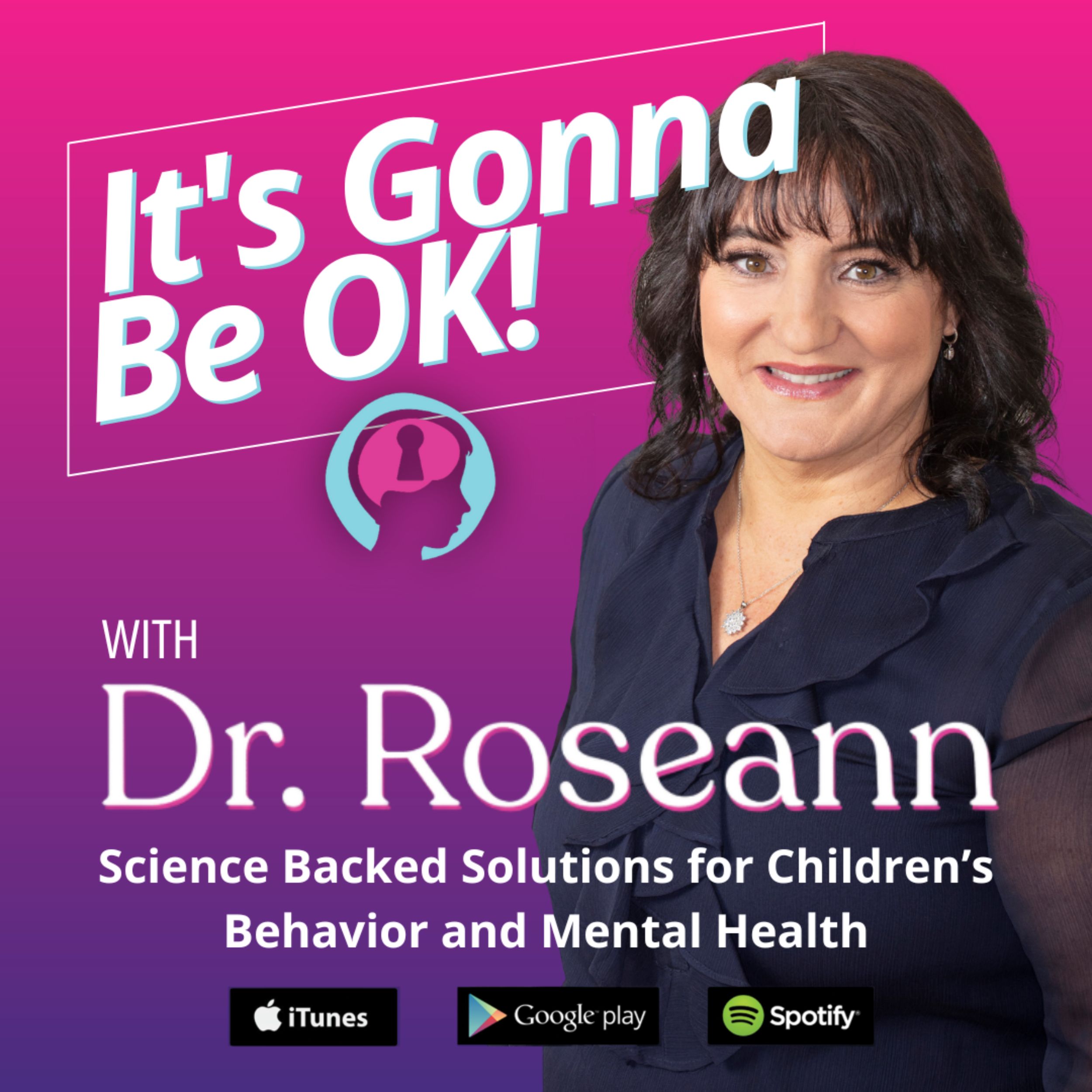Science Backed Solutions for Children’s ADHD, Executive Functioning and Anxiety Dysregulation
Parenting comes with joys and challenges. If you are a mom or dad with a child or teen who is struggling with everyday life or clinical issues like ADHD, Autism, Dyslexia, Executive Functioning, Anxiety, OCD, Depression or Mood, or Lyme and PANS/PANDAS, then you need solutions. If you have seen Dr. Roseann on TV, then you know she doesn’t shy away from real talk about real problems. She gives parents the science-backed keys to unlocking big and small kid and family issues. Blending hope with science, Dr. Roseann teaches parents how to calm the brain to have a ha...
333: What Phones Are Really Doing to Your Child’s Brain
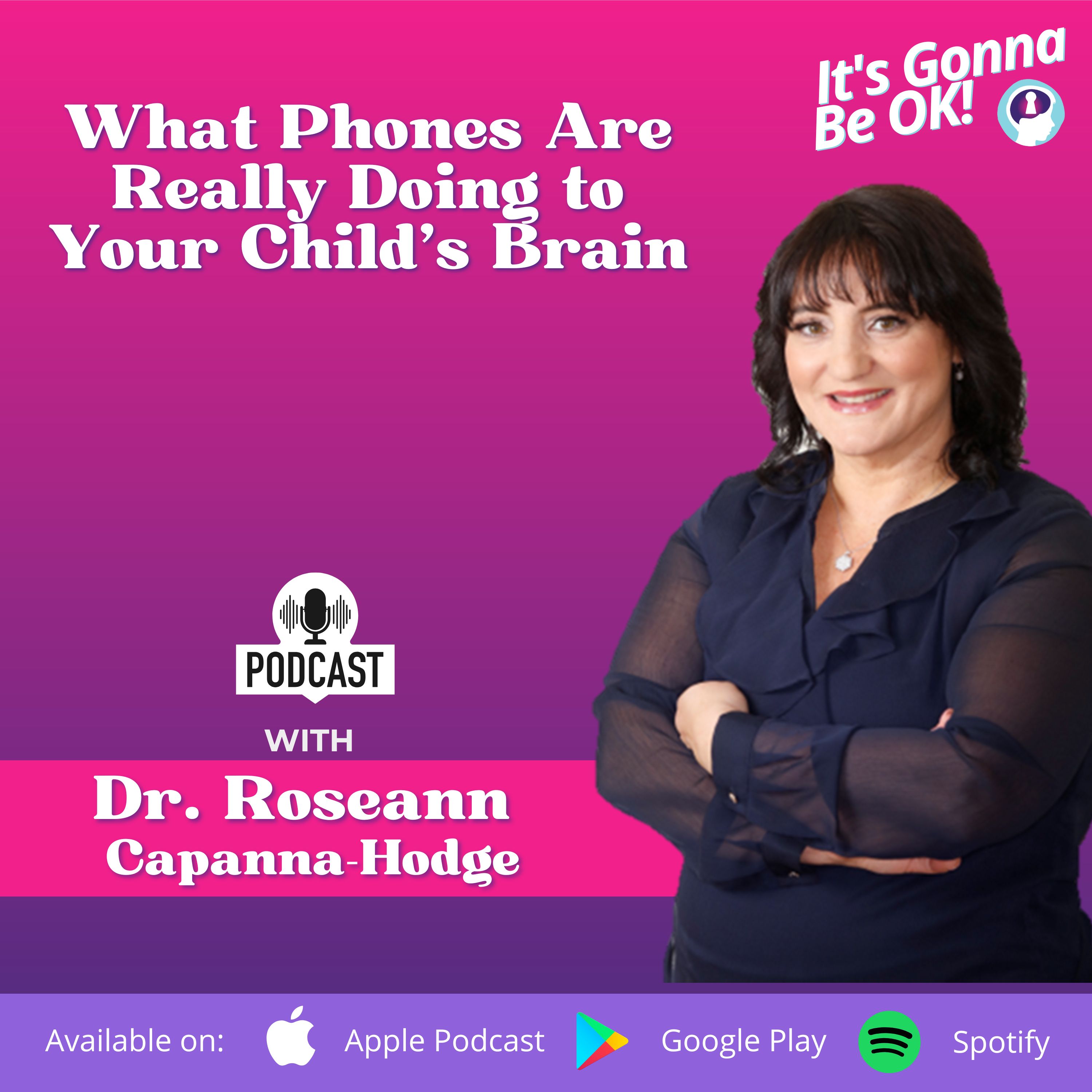
If your child turns into a different person after screen time, you’re not imagining it.
You’re not alone if your once-sweet kid becomes reactive, moody, or shut down after using digital devices. Many parents are overwhelmed by meltdowns, mood swings, and total refusal to transition after screen use—and they’re left wondering what went wrong.
Let me down what too much screen time really does to the developing brain and how it fuels dysregulation, anxiety, and poor emotional control. Most importantly, I’ll share simple, consistent strategies you can use to set...
332: The Calm Parenting Trick That Works in 10 Seconds
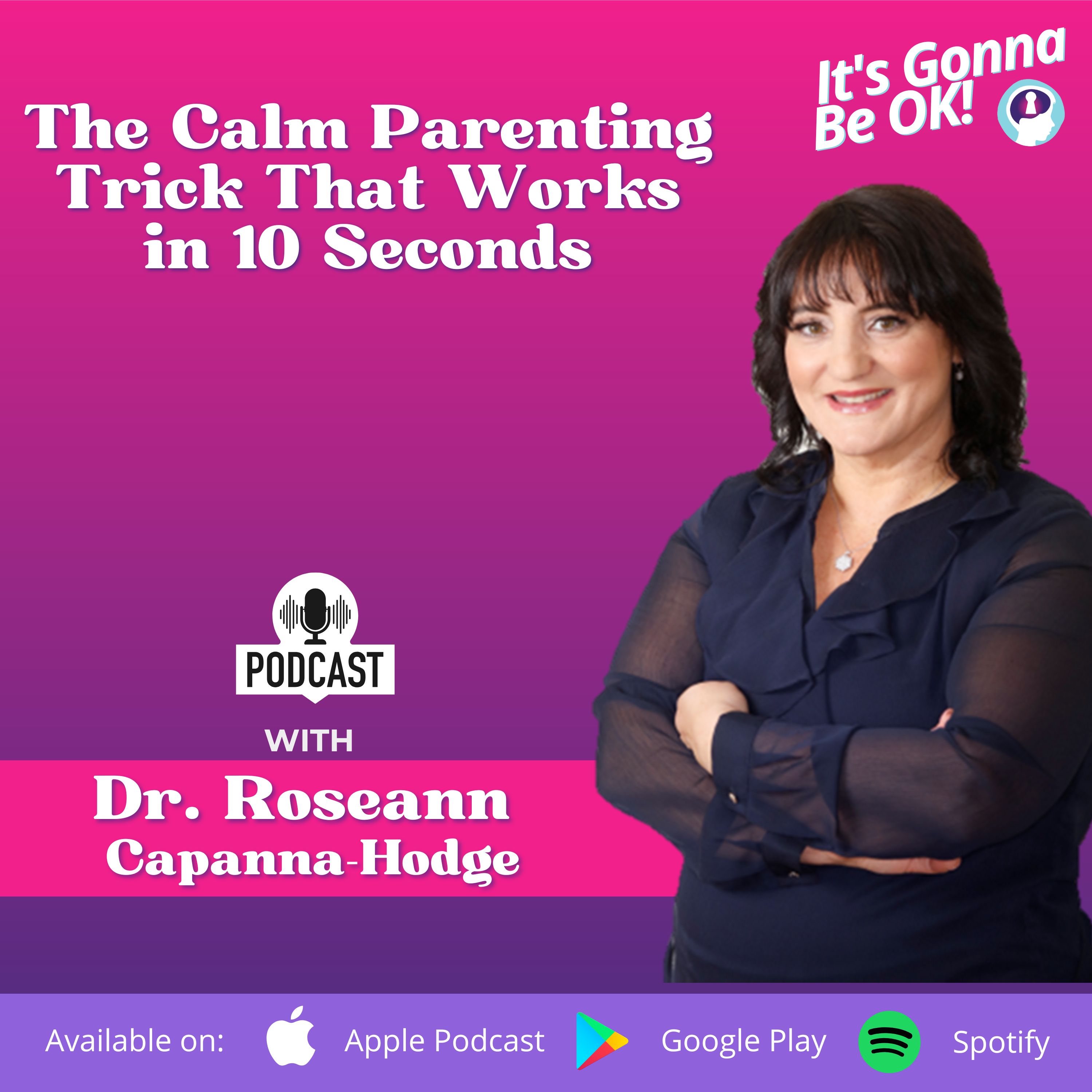
If you’re a mom, dad, or caregiver constantly walking on eggshells, waiting for the next meltdown—you’re not alone.I’ve been there, and I work with families every day who are exhausted by the cycle of big emotions, yelling, and guilt.
In this episode, I’m sharing the exact parenting trick I’ve taught for over 30 years that helps you stay calm in the moment, so you can help your child regulate too.
No special tools. No medication. Just your breath, a short pause, and a shift in energy that creates real change for yo...
331: What No One Tells You About Raising a Strong-Willed Child
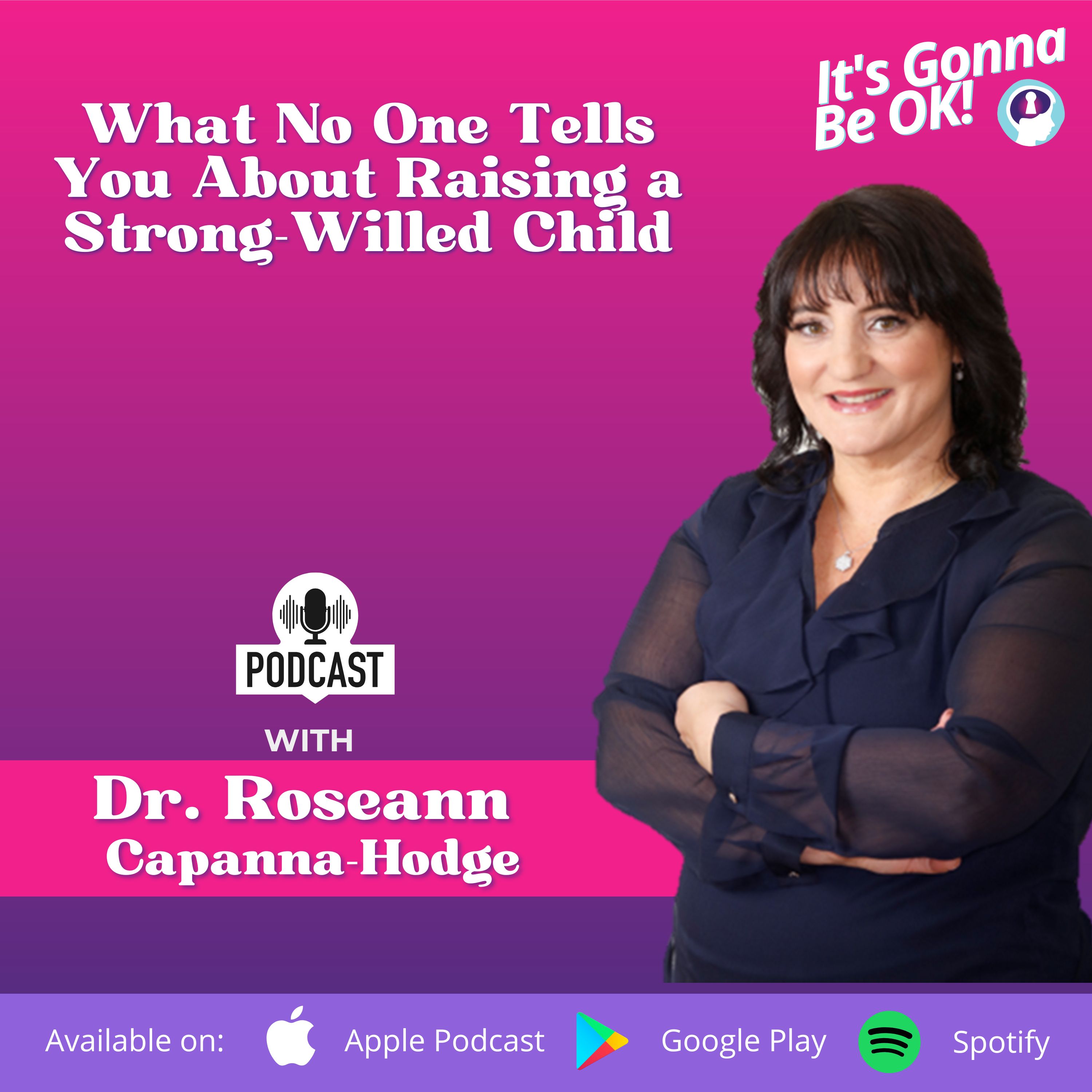
If you're parenting a strong willed child, you're probably tired, frustrated, and maybe even wondering if you’re a terrible mother. I want you to know—you’re not. You’re raising a deeply feeling, fiercely independent person who doesn’t fit the mold... and that’s not a bad thing.
In this episode, I’m pulling back the curtain on what no one tells you about raising strong willed kids. Not only do I work with these kids every day—I am one. And I’ve raised them, too.
We’ll talk about how to avoid power strug...
330: The Secret Signs Your Child Needs Help with Behavior (It’s Not What You Think!)
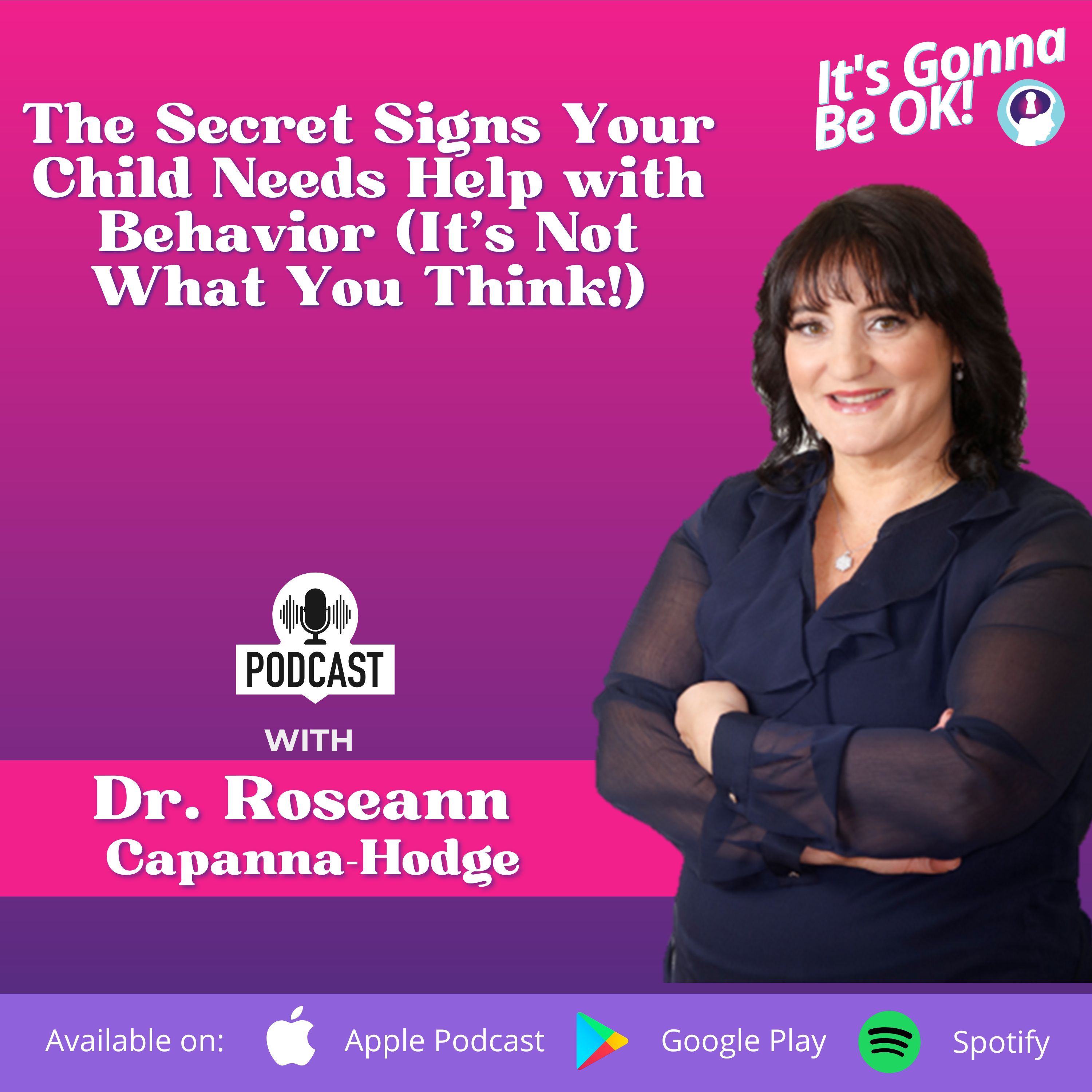
If your child zones out, explodes, or melts down over the “small stuff,” you’re probably wondering if something deeper is going on—and you're not wrong for thinking that. So many parents come to me feeling defeated, exhausted, or flat-out confused by their child’s behavior.
Let me tell you something important: behavior is communication. It’s never just “bad behavior.” It’s your child’s nervous system waving a red flag.
And once we decode what that behavior really means—under or overstimulation, most often—we can start offering the right support. That’s wh...
329: “I Swore I’d Stay Calm… Then I Lost It”
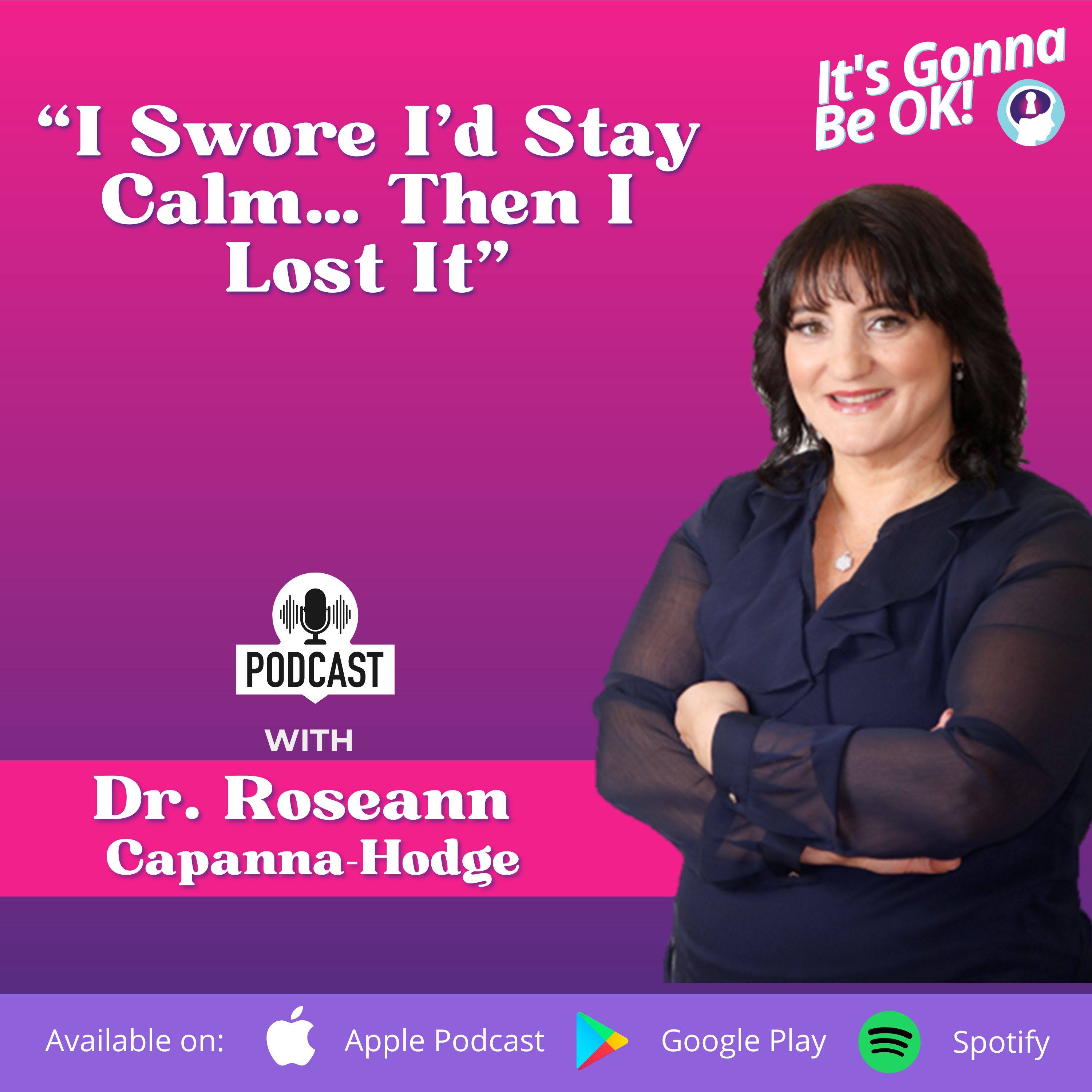
I promised myself I wouldn’t yell… and then I did. If you’ve ever felt that gut-punch after losing it with your child—again—you’re not alone. I’ve been there too.
As a mom and therapist, I know how exhausting it is to parent a child who’s constantly melting down or talking back. But here’s the good news: you can learn to respond, not react—and it starts with calming your own brain first.
In this episode, I open up about what really drives those parenting blow-ups and how to calm your own nervou...
328: When Your Child Is Left Out: What to Say and Do
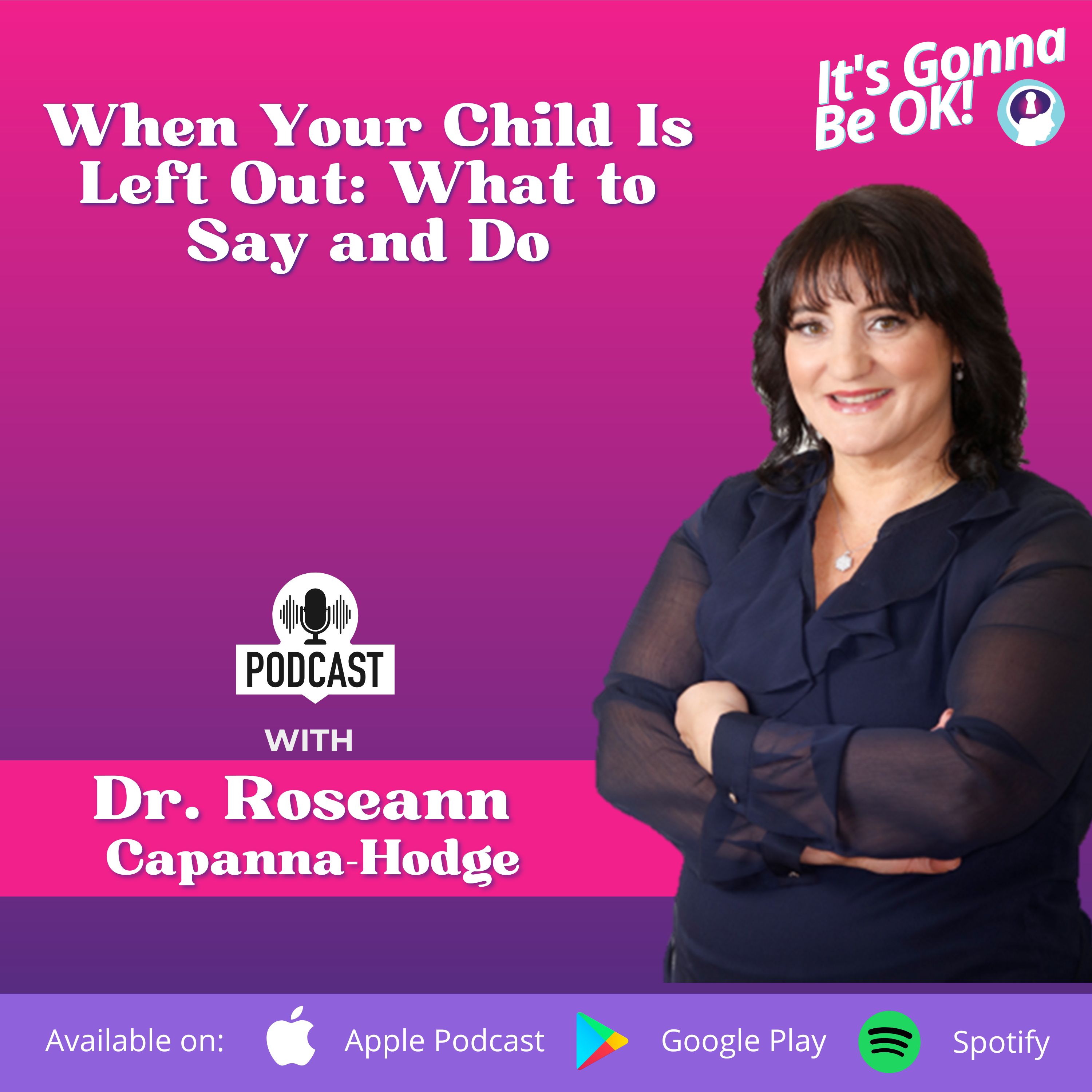
When your child is left out, it’s the kind of heartbreak you don’t forget. I’ve sat in that front-row seat—literally—and watched it happen in real time. And I want you to know: I see you, I’ve been you, and I’m still holding space for the hurt it brings.
In this episode, I’m sharing the very raw, personal story of how my son was excluded from a major school event. I’ll walk you through how I handled it (internally and externally), what I said to the teacher, and what I wish every paren...
327: 3 Foods That Make Anxiety Worse – And What to Eat Instead
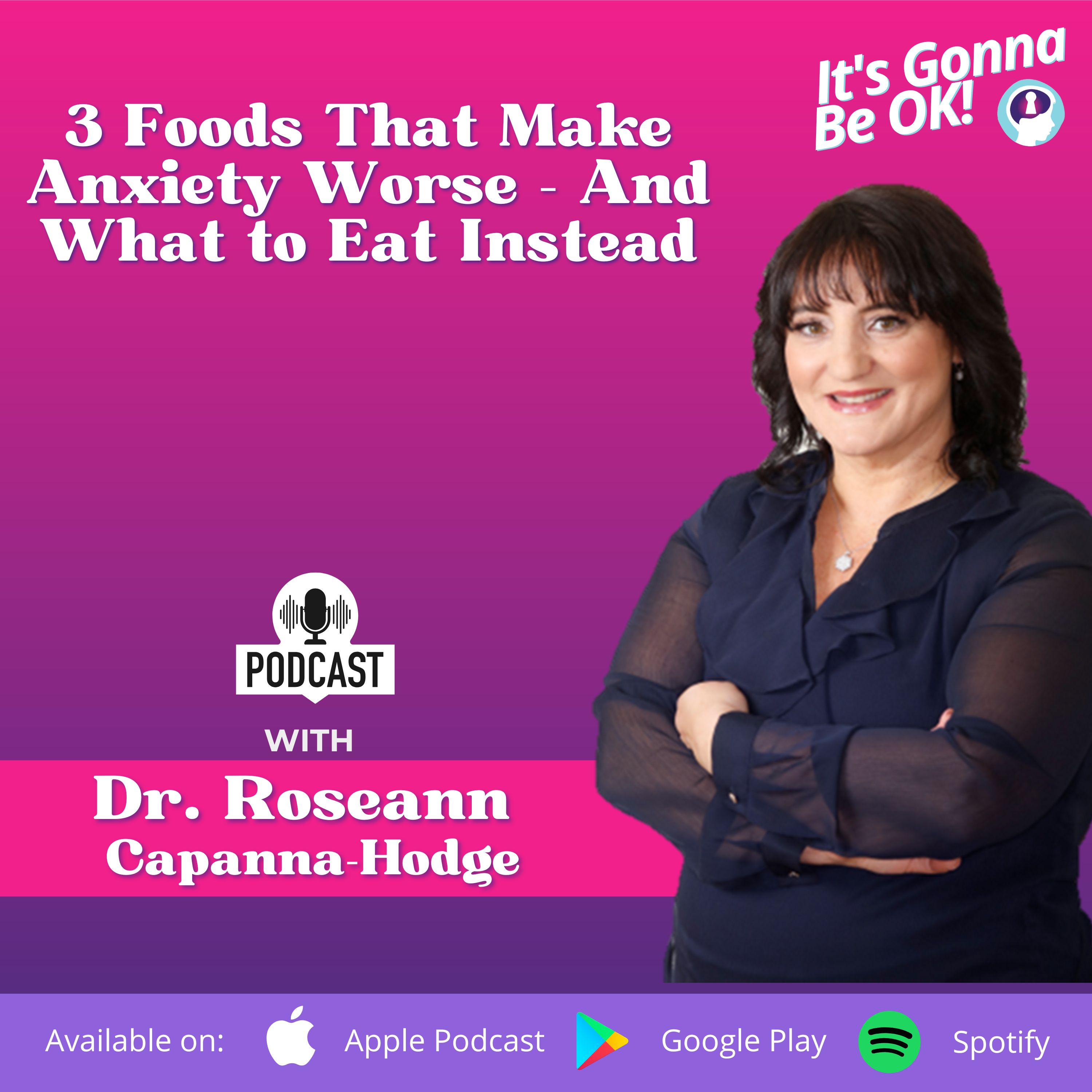
If your child is anxious, reactive, or easily dysregulated, it might be time to look at what’s on their plate. I talk with parents every day who feel stuck, not realizing that diet can be a fast, powerful way to regulate the nervous system.
In this episode, I share the top 3 foods that make anxiety worse—and how small swaps can lead to big changes in behavior, mood, and emotional control.
Why does my child crash after eating sugary snacks?
Sugar and processed carbs are everywhere. And honestly? They’re one...
326: Top 5 Therapeutic Exercises to Improve Emotional Regulation Skills in Children and Teens
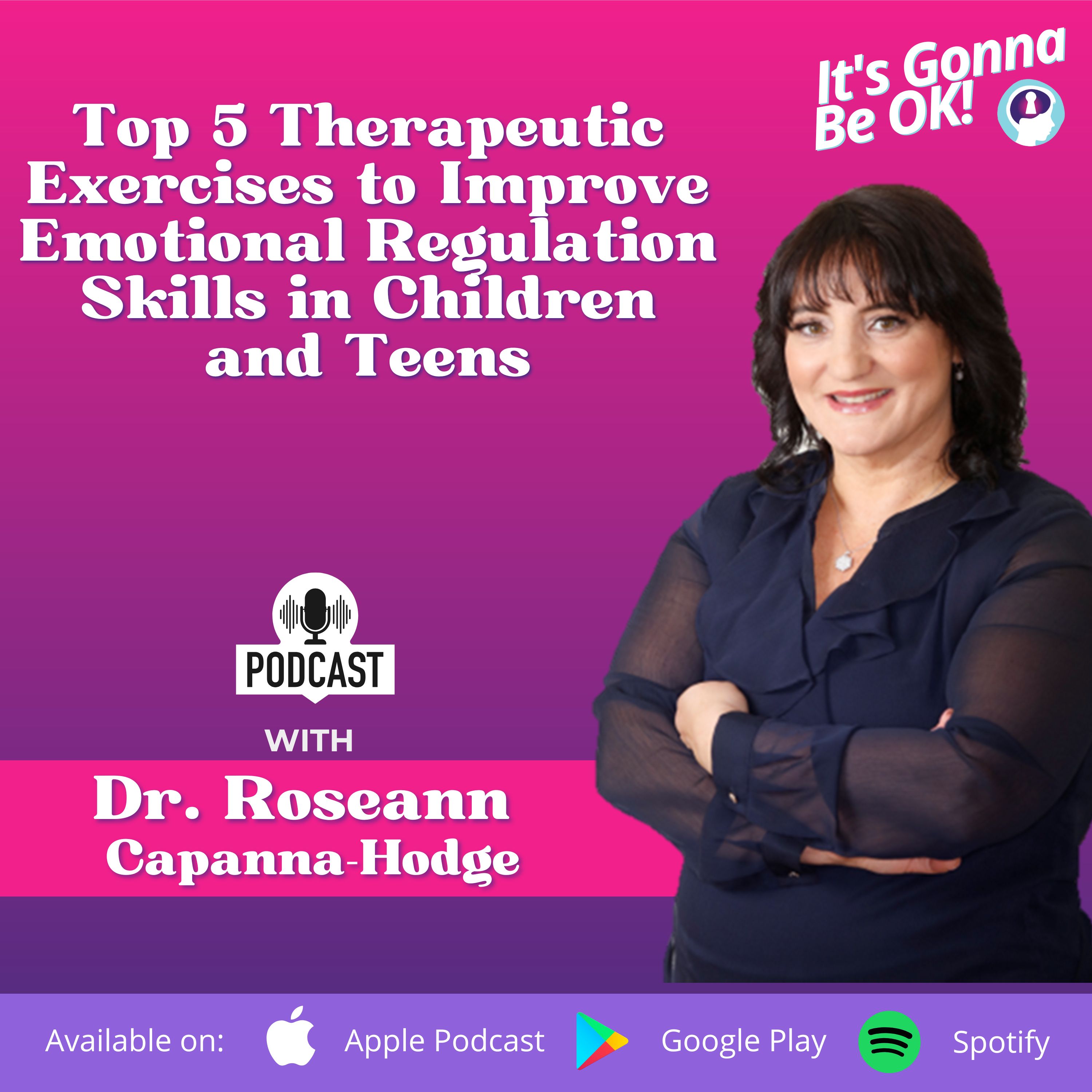
The answer lies in the nervous system. When a child’s brain is in “survival mode,” even small stressors can feel huge. That’s why these exercises are designed to activate the parasympathetic nervous system—the body’s natural "calm and connect" state.
No fancy equipment required. These therapeutic exercises are simple, science-backed ways to help children and teens regulate emotions and build emotional balance. The more consistently you practice them, the more emotional regulation skills improve over time.
Let’s walk through the top 5 therapeutic exercises to improve emotional regulation skills in children and teens.
W...
325: Emotional Dysregulation Treatment: What Really Works for Children and Teens
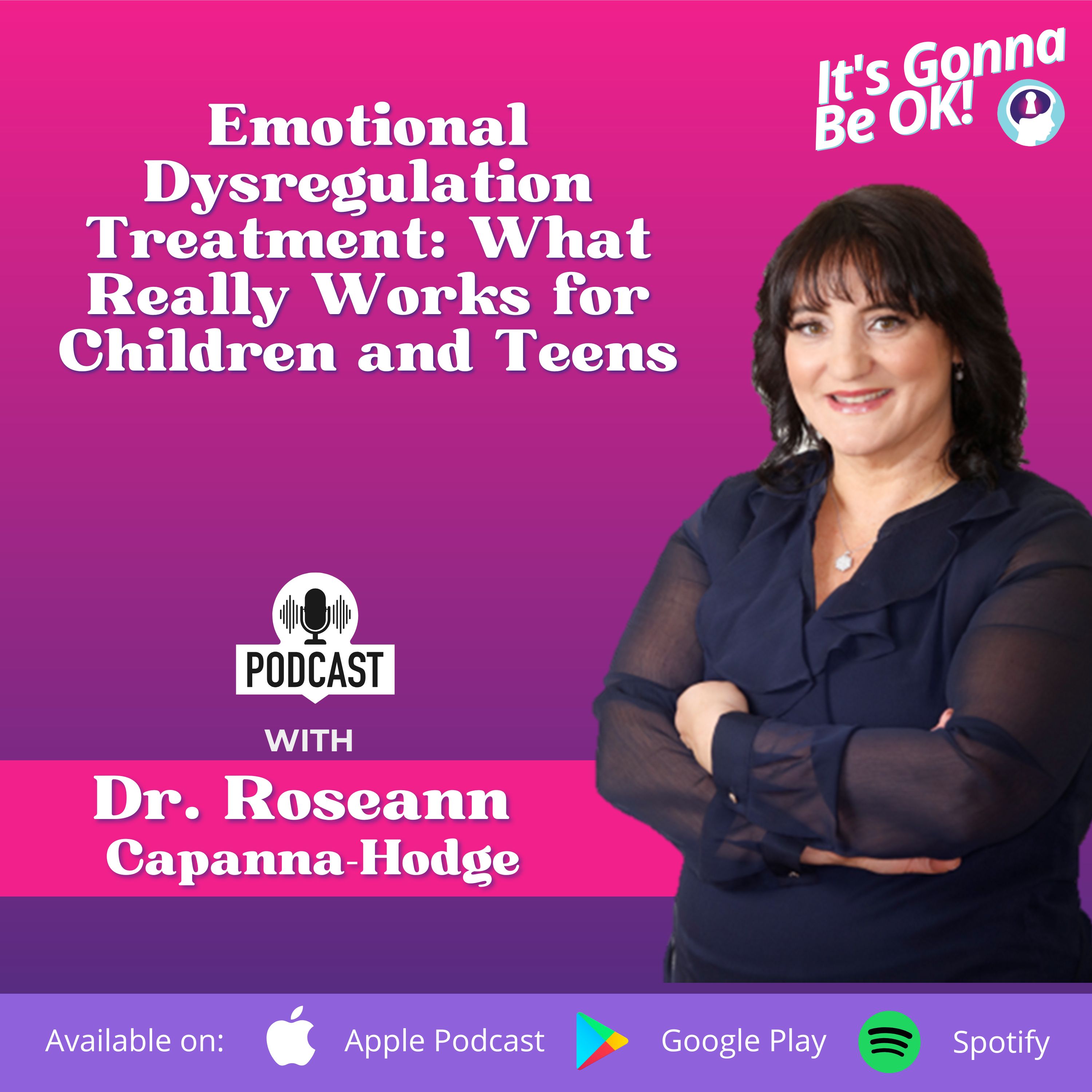
Does it feel like no matter what you try—therapy, medication, behavior plans, or new routines—your child still can’t calm down, stay focused, or manage big emotions? You’re not alone—and you’re certainly not failing as a parent.
So many families come to me after trying everything, only to watch their child continue to spiral. That’s when we stop chasing symptoms and start addressing the root cause: a dysregulated nervous system.
In this episode, I’m walking you through what actually works to create lasting change. From calming the brain and building emo...
324: How Emotional Dysregulation and Trauma Impact Behavior and Learning
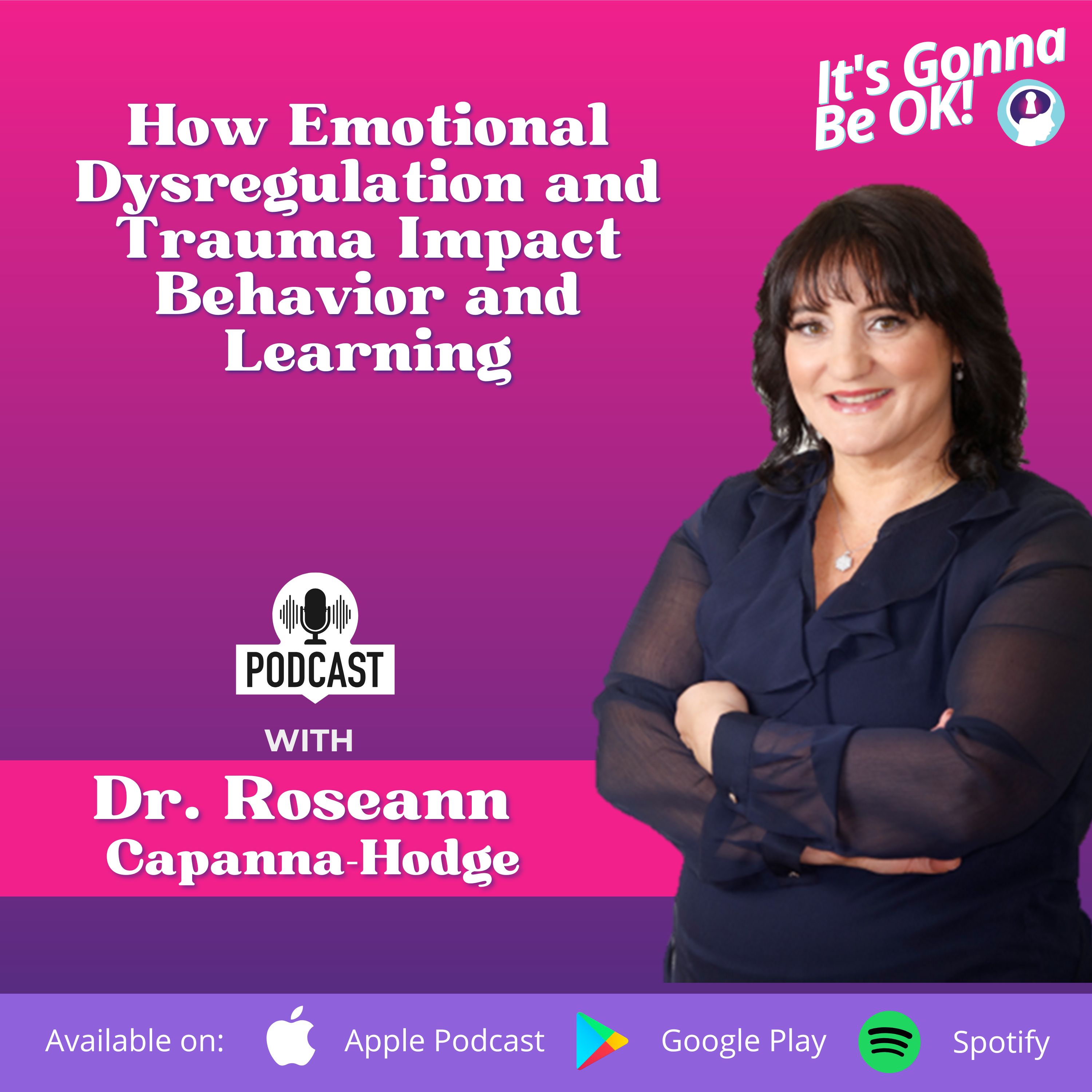
When your child is constantly overwhelmed, melting down over transitions, or avoiding tasks altogether, it’s easy to feel like they’re just not trying. But the truth is much deeper than behavior. Their brain is likely dysregulated—and stuck in survival mode.
Let’s walk through what’s really happening inside your child’s brain when they can’t focus, remember directions, or sit still… and what we can do to help them thrive.
What Happens to the Brain When a Child Experiences Trauma or Chronic Stress?
Trauma hijacks the nervous system. When a child exp...
323: The Link Between Emotional Dysregulation and Trauma in Children
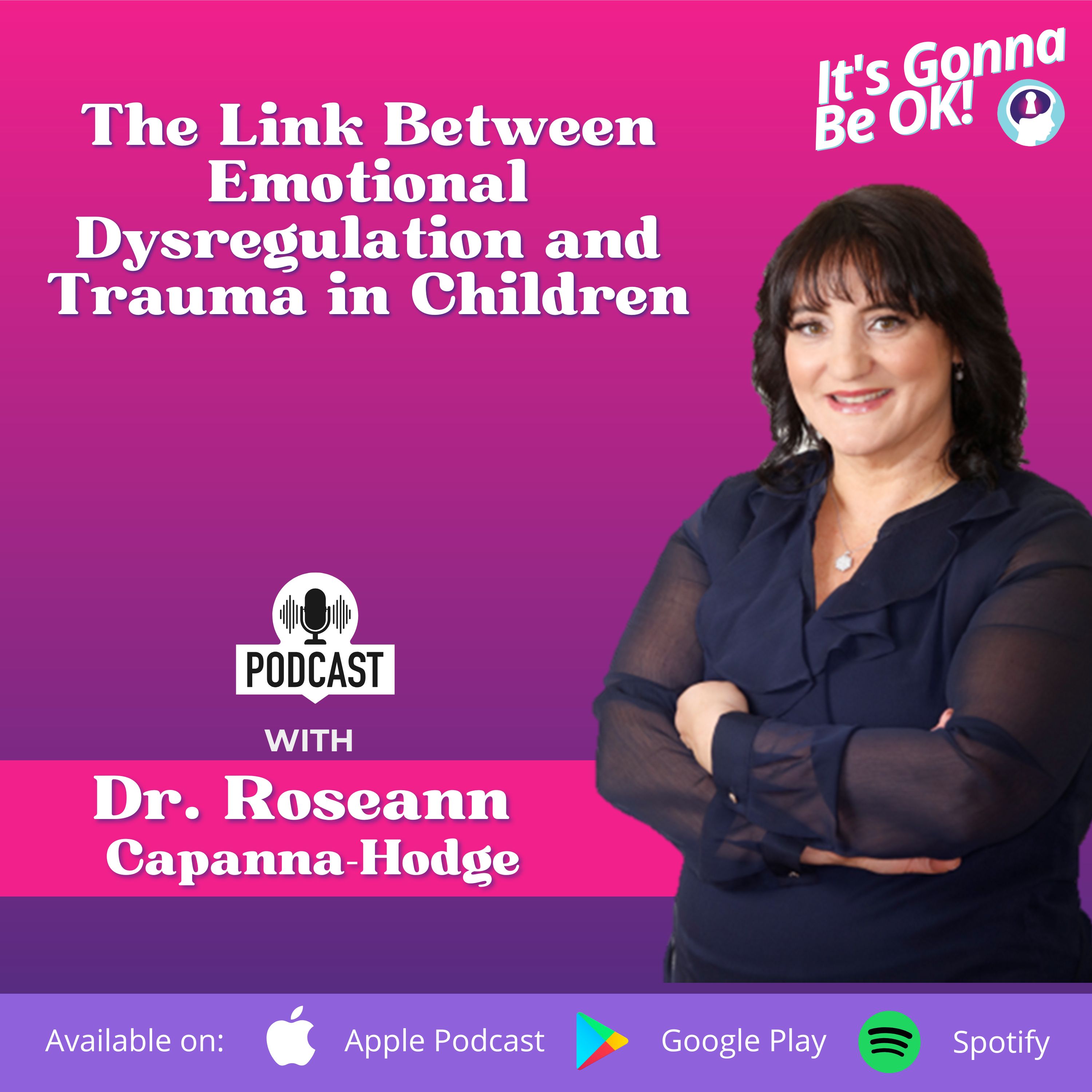
Emotional dysregulation is one of the most common but often misunderstood signs of trauma in children. And trauma isn’t always obvious and the signs can be easy to miss at first—explosive outbursts, sudden shutdowns, anxiety, panic, or even unexpected perfectionism.
For today’s episode, we’re diving into the link between trauma and emotional dysregulation. We’ll talk about how trauma impacts a child’s developing brain and behavior, what red flags to look for, and most importantly, what tools and therapies actually help kids feel safe and regulated again.
How Does Trauma Affect a Chil...
322: Inside the Brain: What's Really Causing Explosive Behavior in Kids
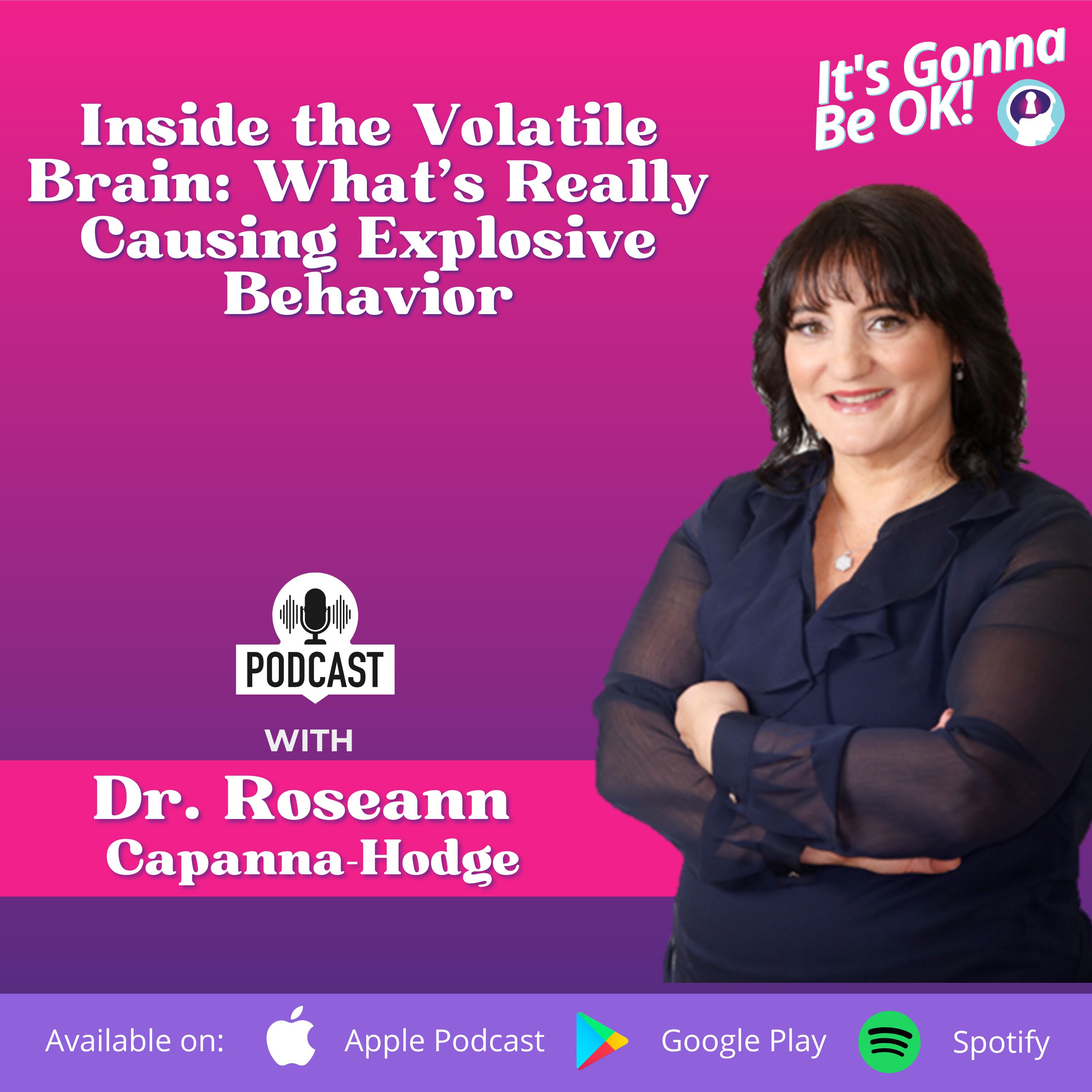
When your child explodes over something small, it can leave you feeling helpless, confused—and even blamed. You may find yourself asking, “Why are they so reactive? What am I missing?”
These intense outbursts aren’t about disrespect or defiance. They’re signs of a nervous system in distress—a brain that’s wired to overreact and struggles to come back to calm once it’s triggered. Behind every meltdown is a child whose brain is crying out for help, not one who’s trying to give you a hard time.
In this episode, we'll break down what’s...
321: 50 Police Calls Later: What Everyone Missed About These Dysregulated Kids
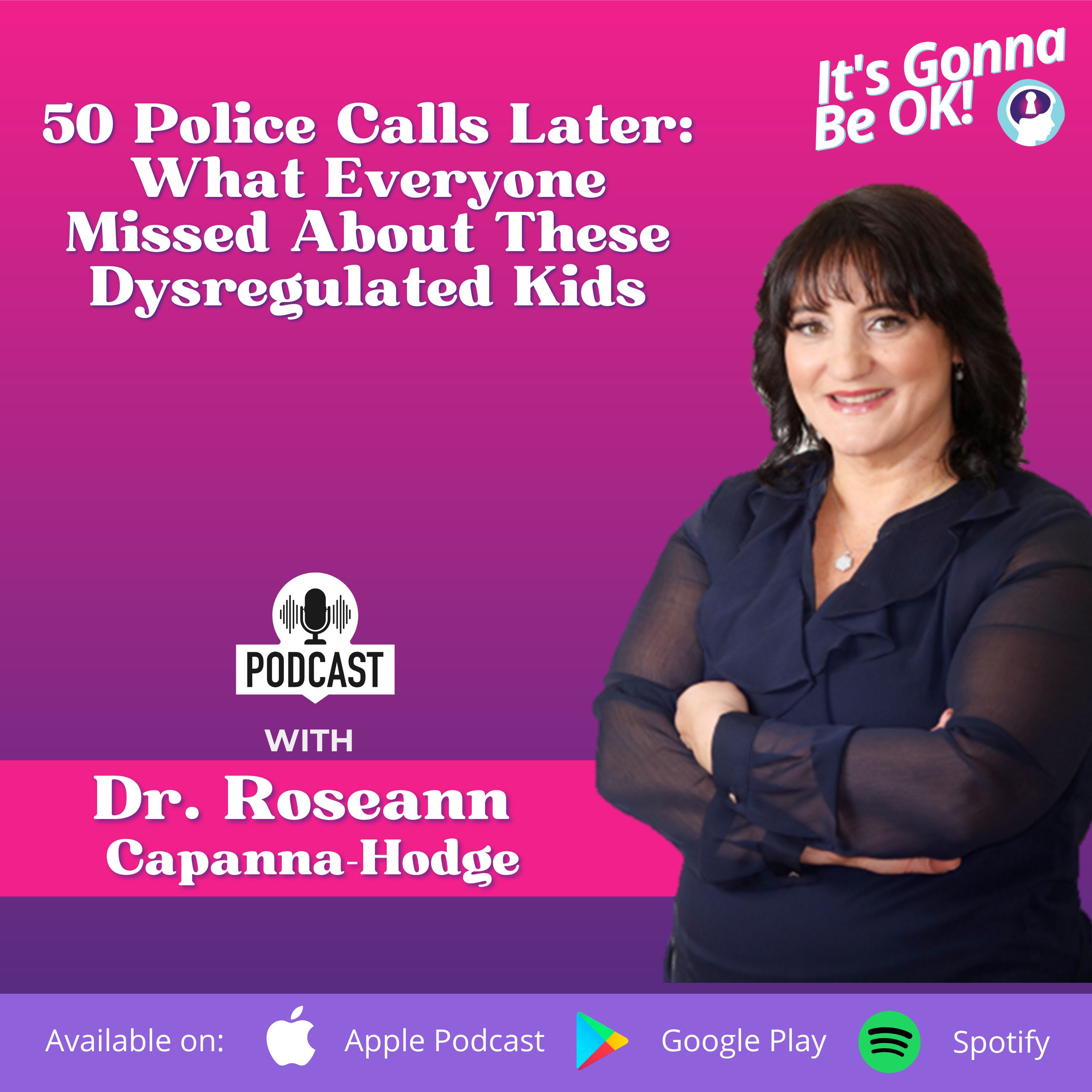
When something like two young boys walking down the street with a loaded gun makes the news, it shocks us — but it shouldn’t. In this case, police had already been called to their home more than 50 times. That’s 50 missed chances to see not just behavior, but signs of deep nervous system dysregulation.
Until we learn to recognize dysregulation as the root of extreme behavior, we’ll keep missing what really matters. And by the time support arrives, it may already be too late. Let’s take a closer look at what dysregulation actually looks like in kids, w...
320: What the Vagus Nerve Has to Do With Your Child’s Behavior
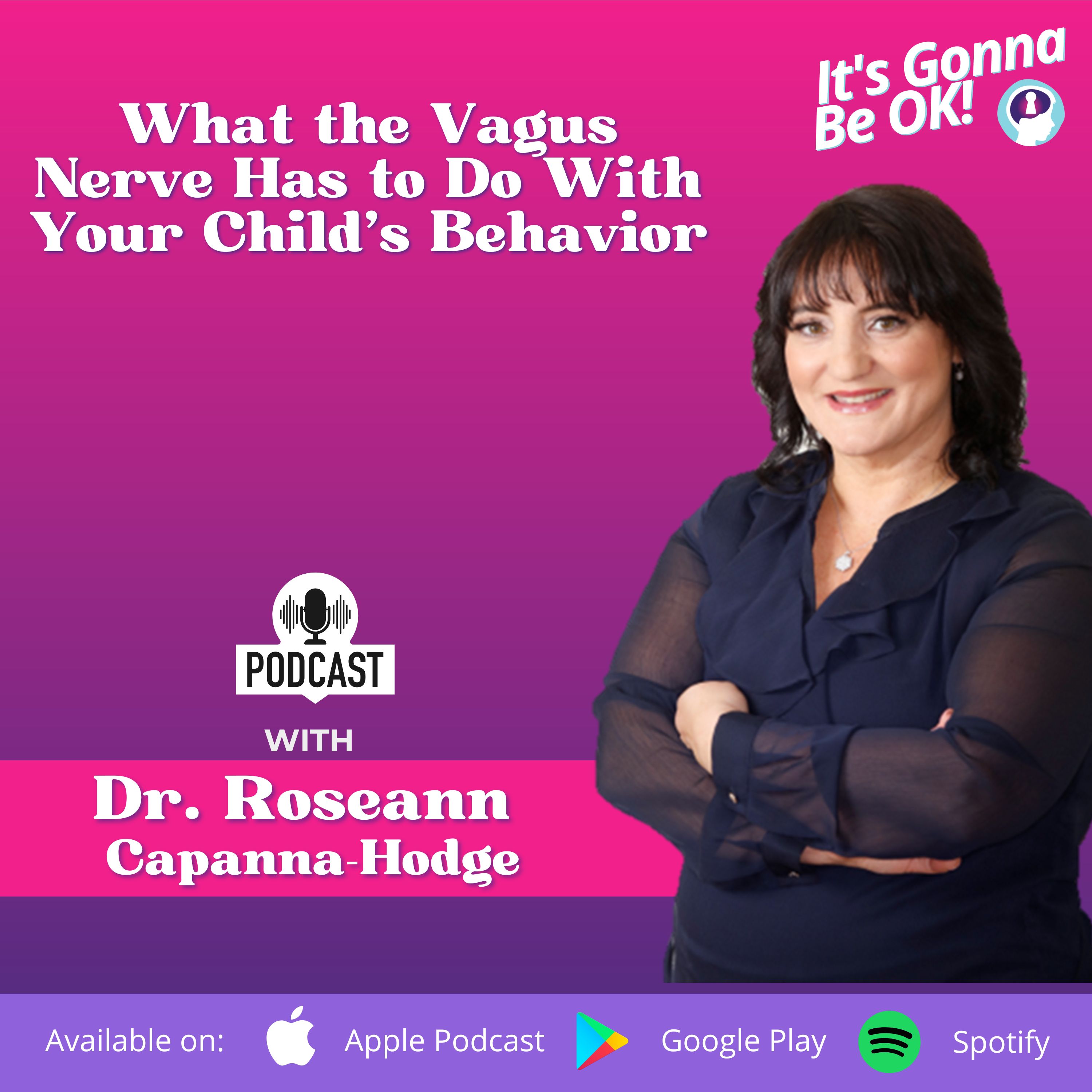
Are you wondering why your child goes from calm to chaos in seconds? The truth is, these intense reactions aren't about willfulness or defiance. They’re signs of a dysregulated nervous system—and the vagus nerve plays a key role in all of it.
Understanding how the vagus nerve affects behavior is a game-changer for parents. Once you know how to support it, you’ll see real shifts in your child’s ability to stay calm, focused, and connected. Let’s explore what the vagus nerve does and how you can start using it to help your child regu...
319: “I Hate You, Mom!”—What to Say When It Hurts Most
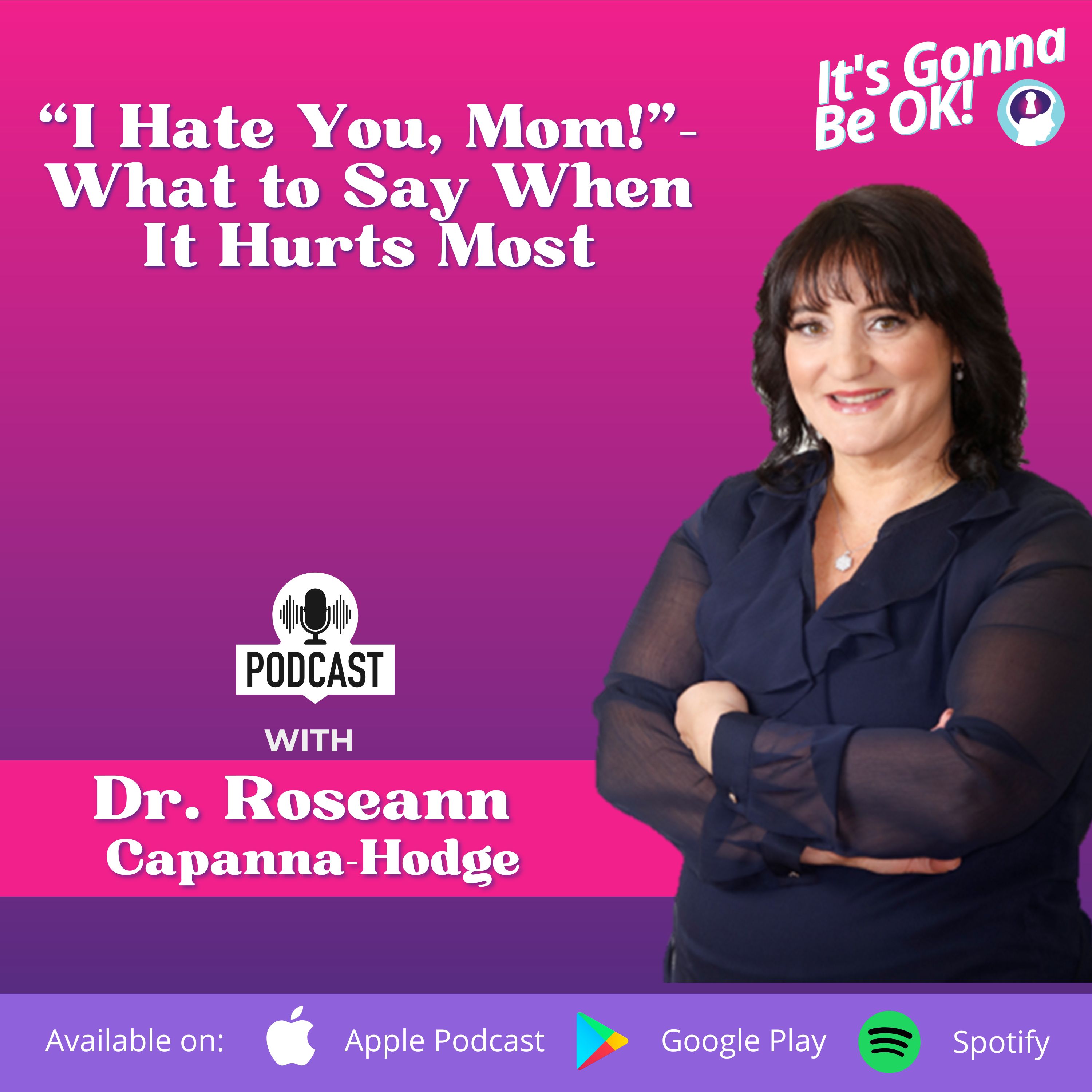
"I hate you, Mom!" These words can shatter even the strongest parent’s heart. In that moment, you're faced with a tidal wave of emotion. You might wonder what went wrong, or whether you're somehow failing as a parent.
But the truth is—they don’t mean it. Let me help you understand what’s underneath those explosive words and how you can respond in a way that calms the chaos, protects your connection, and supports your child’s emotional growth. Because it’s not about getting it perfect; it’s about showing up with calm and compassion, ev...
318: The #1 Thought-Calming Strategy Every Parent of an Anxious Child Must Know
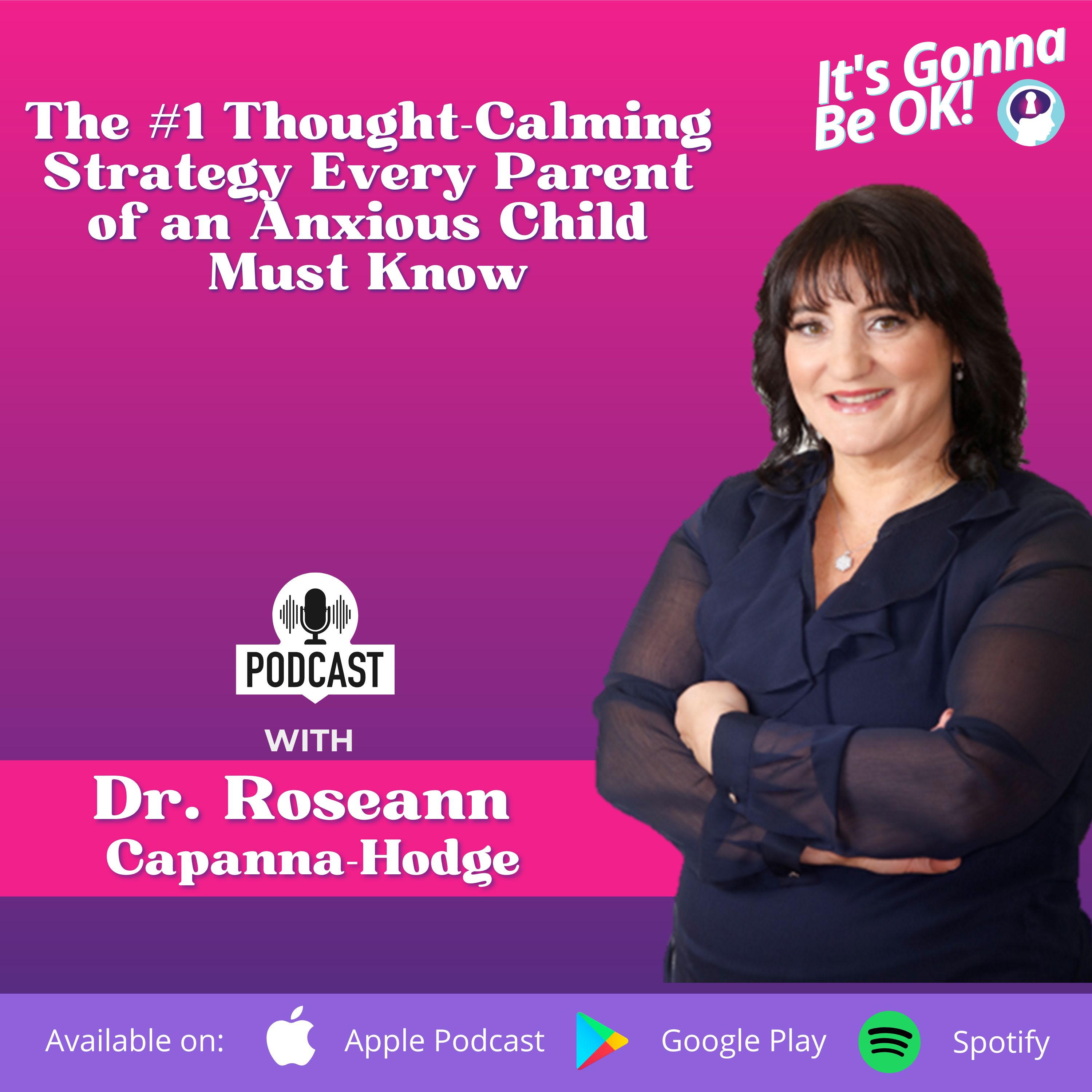
If your child constantly seeks reassurance, insists on certain routines, or melts down when things aren’t “just right,” they may be struggling with anxiety or even OCD. And while your instinct might be to soothe or fix things in the moment, that’s actually the most common mistake parents make.
Let's dive into the #1 thought-calming strategy every parent of an anxious or compulsive child needs to know: how to stop rescuing and start coaching. The real path to healing lies in helping your child calm their nervous system and build the coping tools to face fears head-on...
317: The 3 WORST Supplements for ADHD (That Make Symptoms Worse)
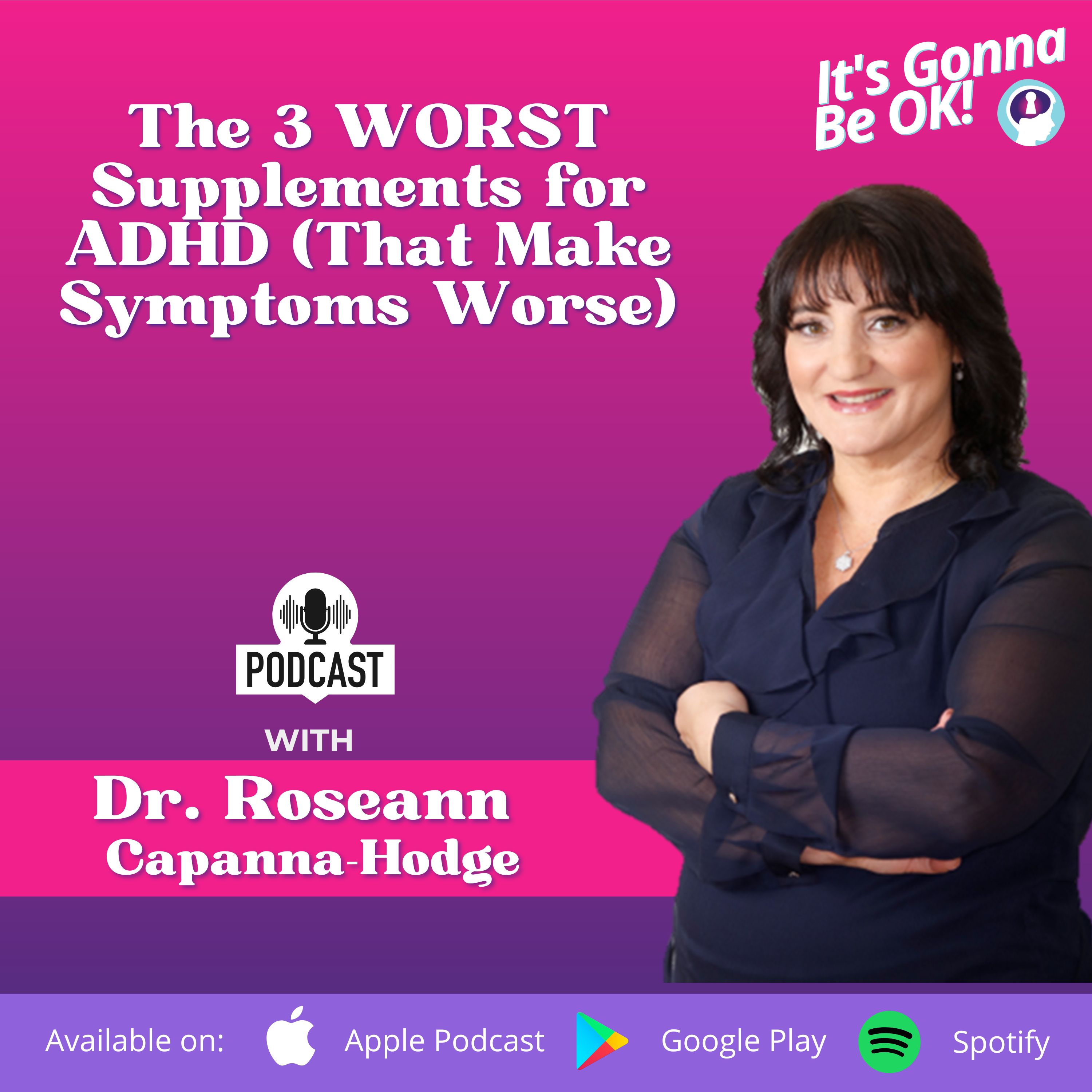
Supplements for ADHD are everywhere—promising a natural fix for focus, anxiety, and emotional regulation. But here’s the problem: not all nutritional supplements are safe or effective for kids with Attention Deficit Hyperactivity Disorder (ADHD). In fact, some can actually make ADHD symptoms worse, especially in children with sensitive nervous systems, food sensitivities, or underlying genetic variants like MTHFR.
As a parent, it’s easy to get swept up in the promise of a quick solution. When your child is struggling with focus, mood swings, or emotional outbursts, you’ll try anything to help. But not all ADHD...
316: Beyond ADHD: Why Your Child’s Explosive Behavior Might Be a Mood Disorder
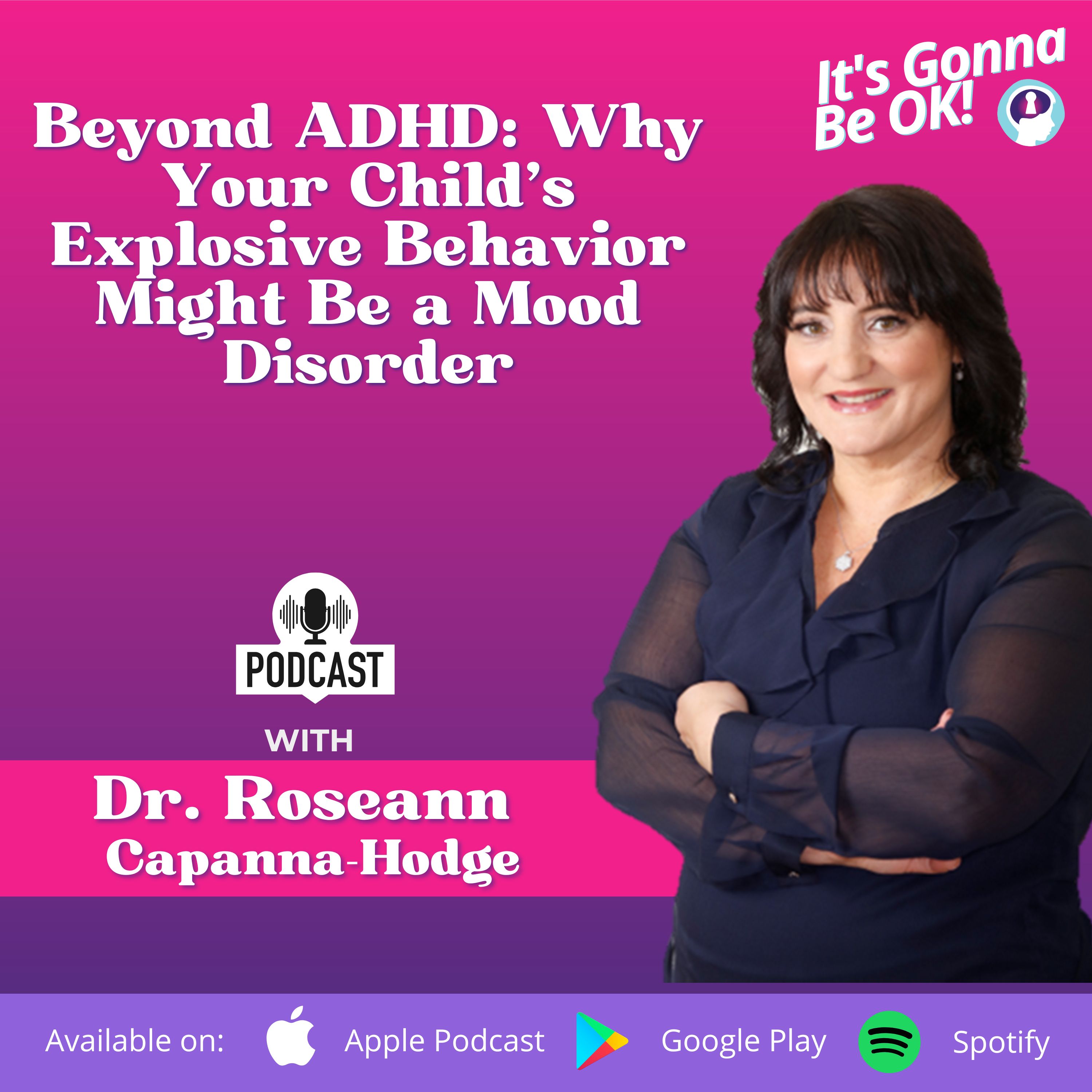
When your child frequently has intense emotional outbursts, it can leave you feeling helpless and unsure of how to help. You may have heard ADHD as a possible explanation, but sometimes these behaviors point to an underlying mood disorder that’s making it hard for your child to manage their emotions.
Understanding this can change everything. Let me help you see beyond the surface, so you can better understand what’s really happening in your child’s brain and how to support them in a way that truly helps.
And remember—you’re already on the right...
315: Dysregulated or Defiant? Understanding the Brain-Behavior Connection
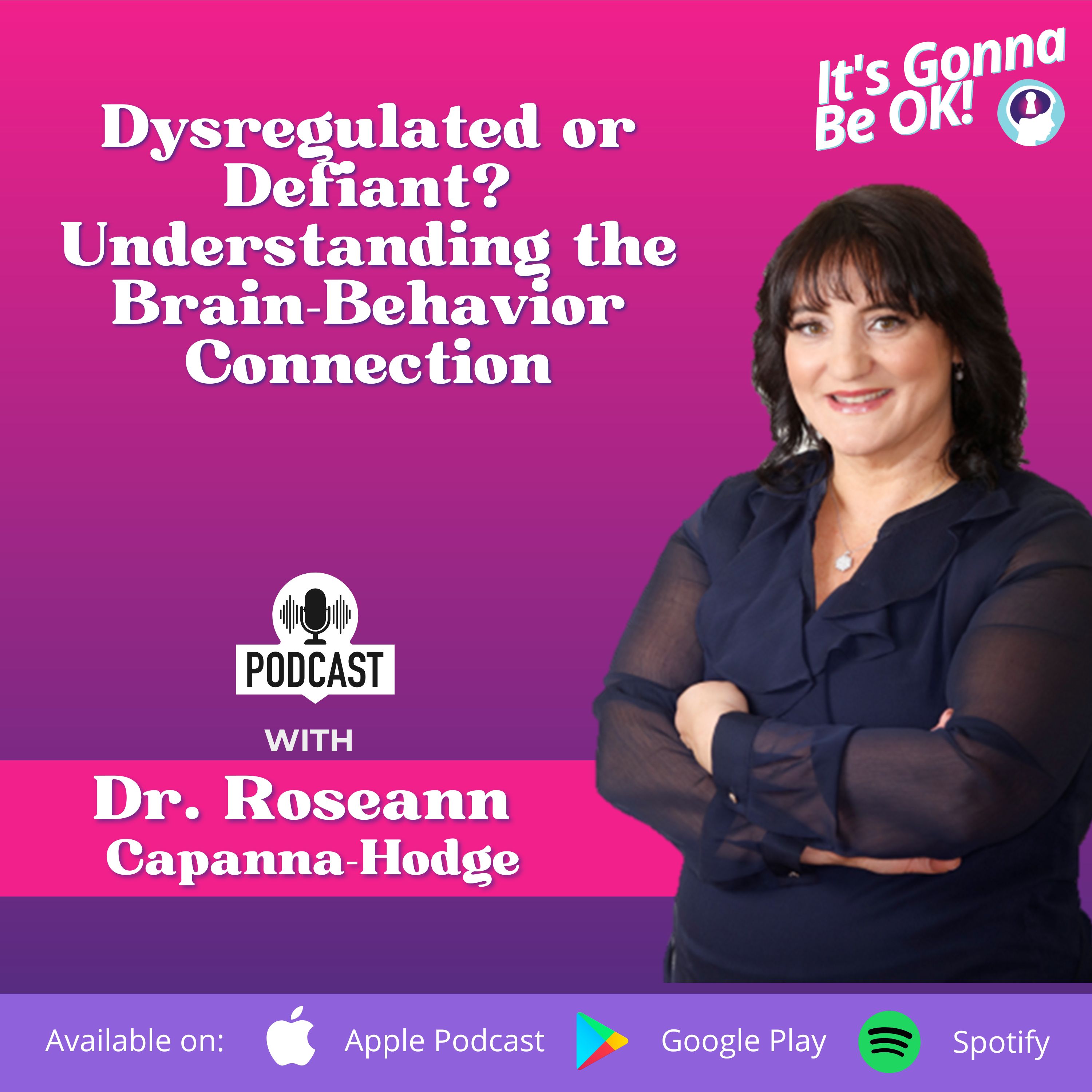
Ever find yourself wondering if your child’s challenging behavior is just plain defiance or something more? What’s important to understand is that behavior isn’t simply a choice—often, it’s a window into what’s happening deep inside their brain and nervous system.
Understanding the brain-behavior connection is key to unlocking why your child acts the way they do. And when you see behavior through this lens, it changes everything—how you respond, how you support, and how your child learns to regulate themselves.
Not sure where to start? We'll help you find the right...
314: Stop the Spiral! How to Help Kids With Emotional Dysregulation and Anxiety

Emotional dysregulation and anxiety can turn everyday moments into massive meltdowns. You try everything you know: staying calm, explaining consequences, offering choices. But nothing sticks and the spiral keeps happening—again and again.
Let me help you stop the spiral. In this article, we’ll break down how to put the CALMS Dysregulation Protocol into action during real-life parenting moments. You’ll learn tools that empower you to respond with calm—even when your child is melting down, anxious, or seemingly unreachable.
Not sure where to start? We'll help you find the right solution tailored to your...
313: Emotional Dysregulation: Signs, Causes, and How to Help Your Child Regulate Emotions
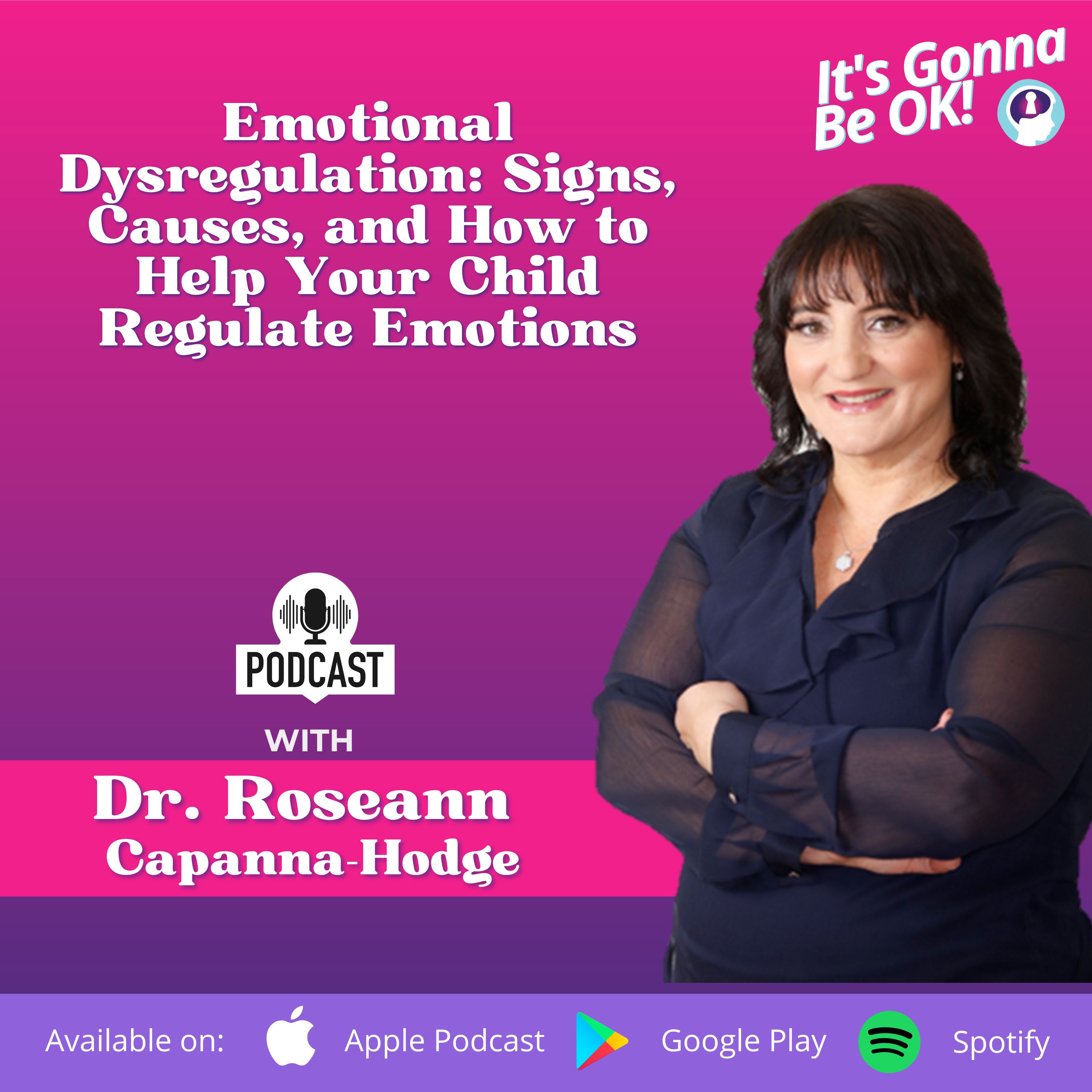
Have you ever watched your child’s meltdown and felt completely lost on how to help? Those intense outbursts, shutdowns, or explosive reactions can be heartbreaking and exhausting — yet they often get misunderstood as just “bad behavior” or defiance. The truth is, emotional dysregulation runs much deeper, and without the right support, both kids and parents can feel stuck in a frustrating cycle that no one wants.
Understanding the signs and causes of emotional dysregulation is the first step. That’s why I’m here! In this episode, I’ll guide you through what emotional dysregulation looks like, why it h...
312: What Is Emotional Dysregulation?
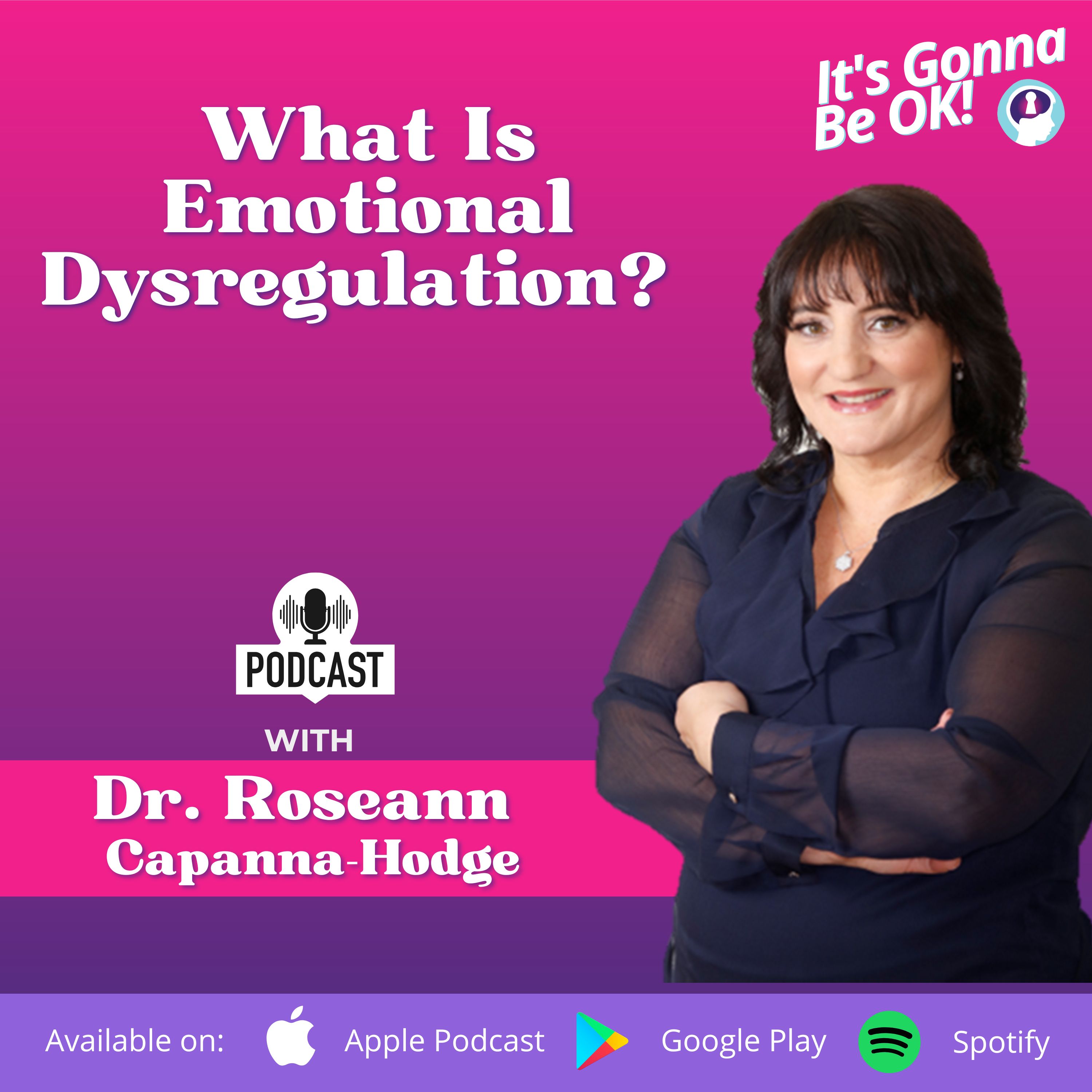
So many kids struggle with emotional dysregulation, but too often their struggles fly under the radar or get misunderstood. Instead of recognizing a child overwhelmed by feelings they can’t control, they’re labeled as “just being difficult” or even misdiagnosed. But beneath those behaviors lies a nervous system stuck in overdrive, quietly crying out for help.
If we don’t recognize what’s really going on, these kids miss out on the understanding and support that could change everything for them. In today’s episode, we’re breaking down emotional dysregulation—what it looks like, why it happens, and ho...
311: Case Study: The Shocking Case of a 10-Year-Old Who Shot His Mom—What Emotional Dysregulation Teaches Us
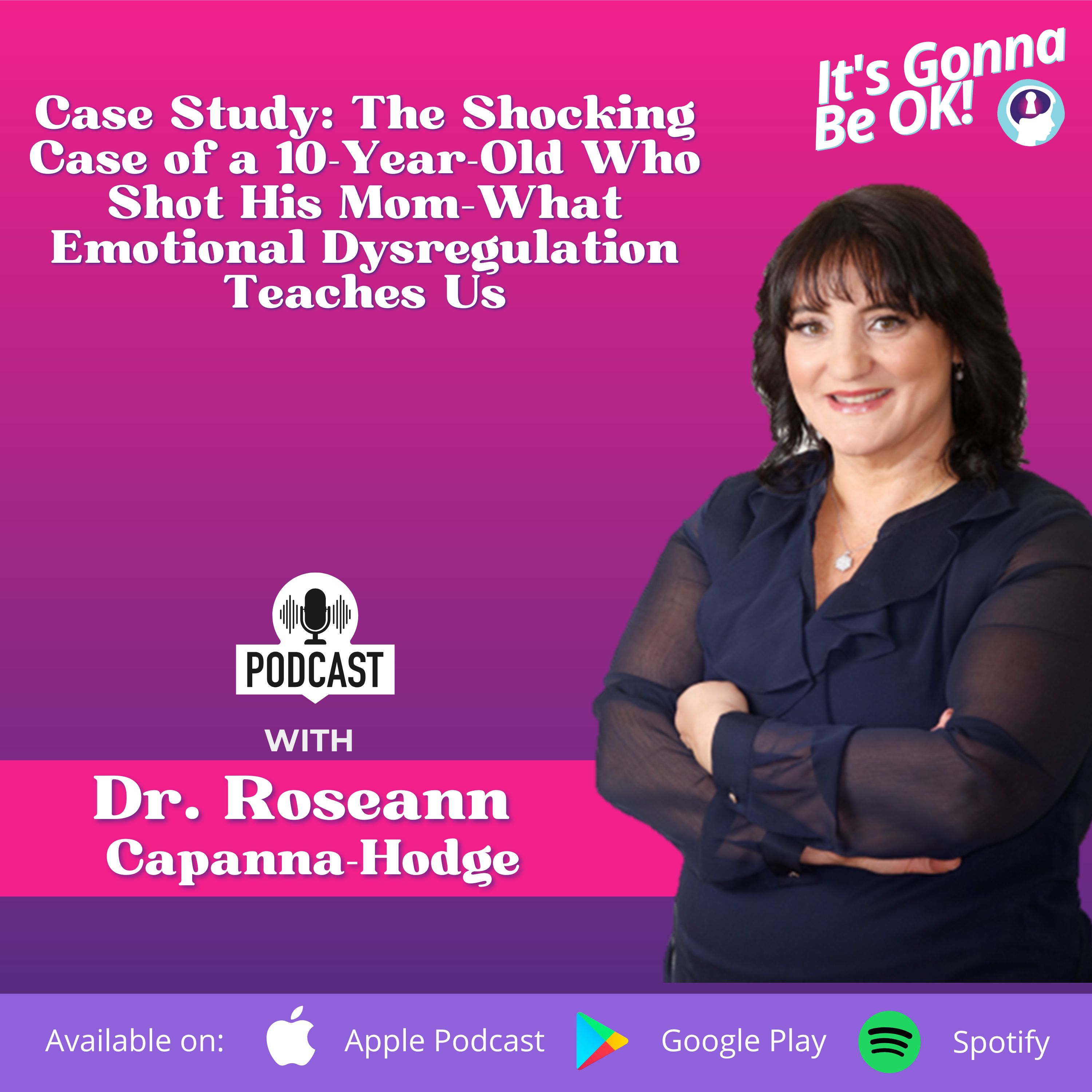
When aggression, rage, or emotional outbursts take over your child’s world, it can feel like everything is spiraling out of control. But what if I told you that beneath those extreme behaviors lies a nervous system crying out for help?
Today, we're diving into an incredibly serious and heartbreaking case—one that underscores what can happen when emotional dysregulation is missed, misunderstood, or left unsupported.
If you suspect emotional dysregulation, don’t wait—take action early, seek guidance, and remember you can find help at https://drroseann.com/help/.
Unlock your child’s potential...
310: The Medical Mystery Behind Your Child’s Dysregulation, OCD, and Anxiety
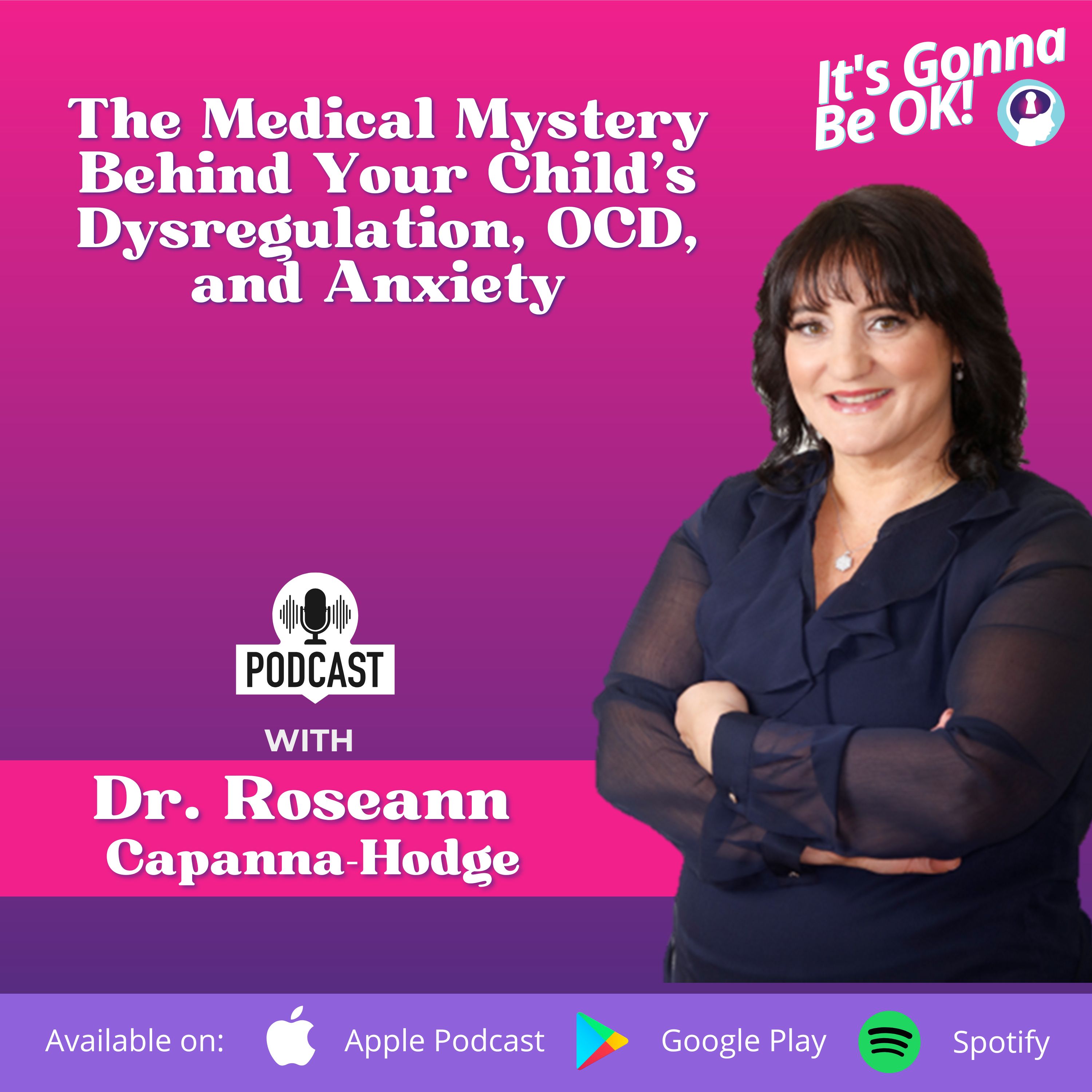
When your child struggles with dysregulation, OCD, or anxiety, it’s easy to assume these challenges are purely mental or behavioral issues. But what if there’s a hidden medical mystery behind what you’re seeing? Oftentimes, underlying factors quietly influence your child's brain and body, turning their typical behaviors into overwhelming struggles.
These causes often go unnoticed, leaving families stuck searching for answers and feeling frustrated by treatments that don’t seem to work. I’m here to help you navigate this complex journey, shedding light on the hidden medical factors that might be driving your child’s str...
309: When Nothing’s Working… Here’s What a Brain Map Can Show You That Nothing Else Will
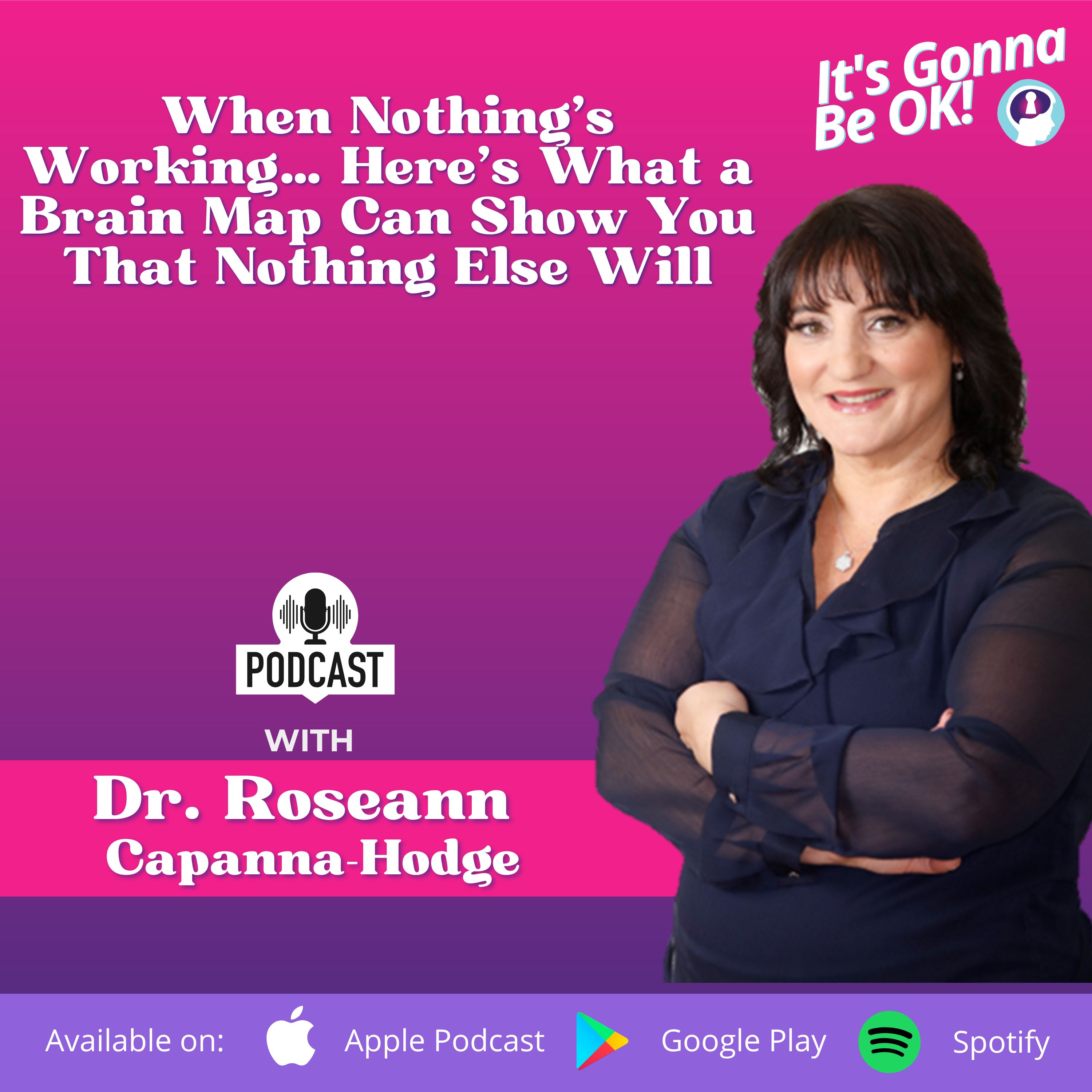
Feeling overwhelmed and out of options when it comes to your child’s challenges? When all the usual approaches fail, a brain map becomes a game-changer. It helps us understand what’s really going on so we can build a plan that uses your child’s strengths to support their challenges.
In today’s episode, we’ll dive into how brain mapping works, why it’s such a powerful tool for parents, and how it can transform your approach to supporting your child. No guesswork—just data, clarity, and next steps.
Not sure where to start? We'll h...
308: OCD at School: Helping Your Child Thrive in the Classroom
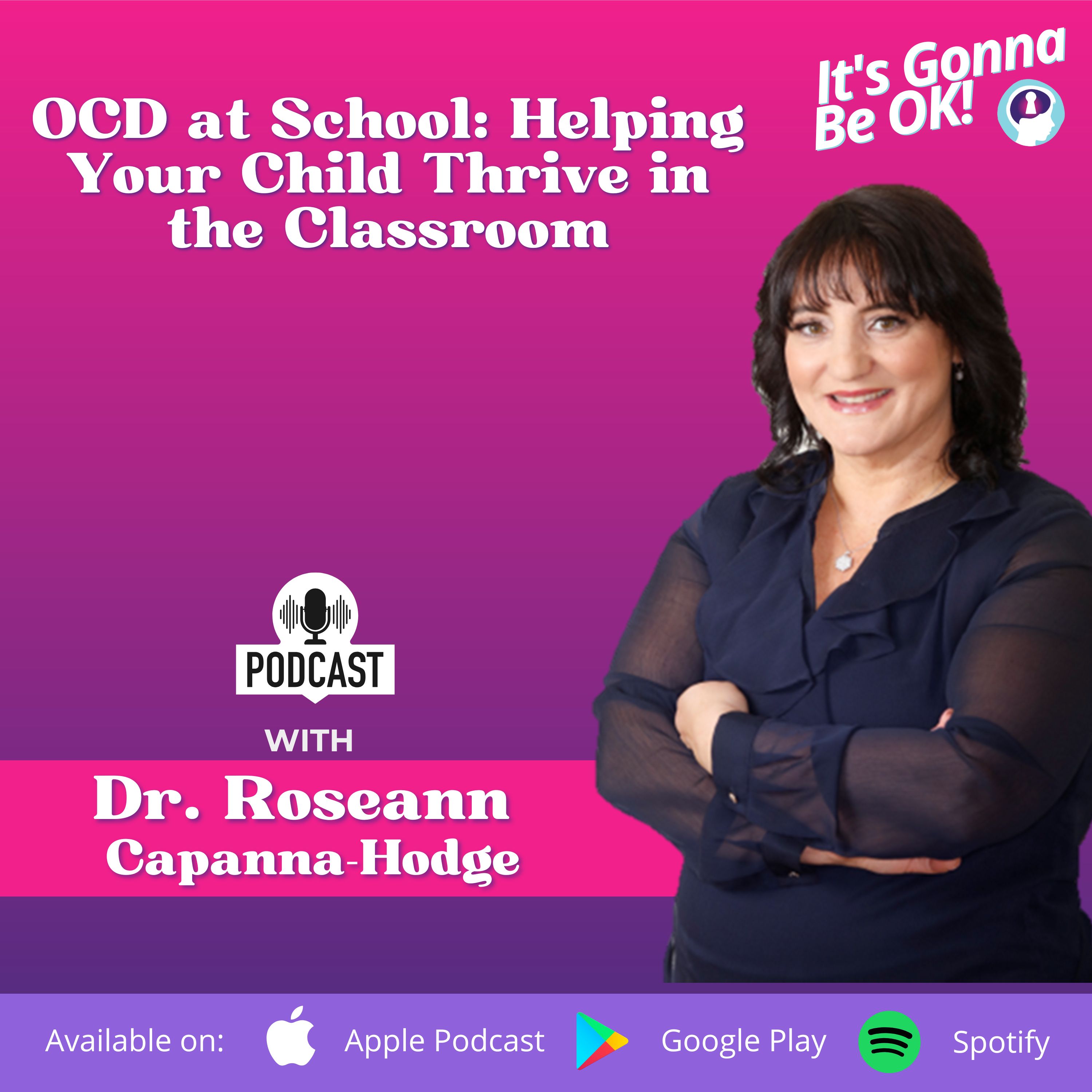
When your child has obsessive compulsive disorder (OCD), school often becomes a challenging and overwhelming place. Constant worries, perfectionism, and mental rituals can make focusing and learning feel almost impossible. These struggles can leave both kids and parents feeling frustrated and exhausted.
But with the right support and understanding, your child can start to feel safe, capable, and even thrive within the classroom environment. It’s about creating a space where they can manage their symptoms without shame or fear. With the right tools in place, school can become a place of growth instead of stress.
307: 5 Things Parents Shouldn't Say to Kids with OCD or Anxiety
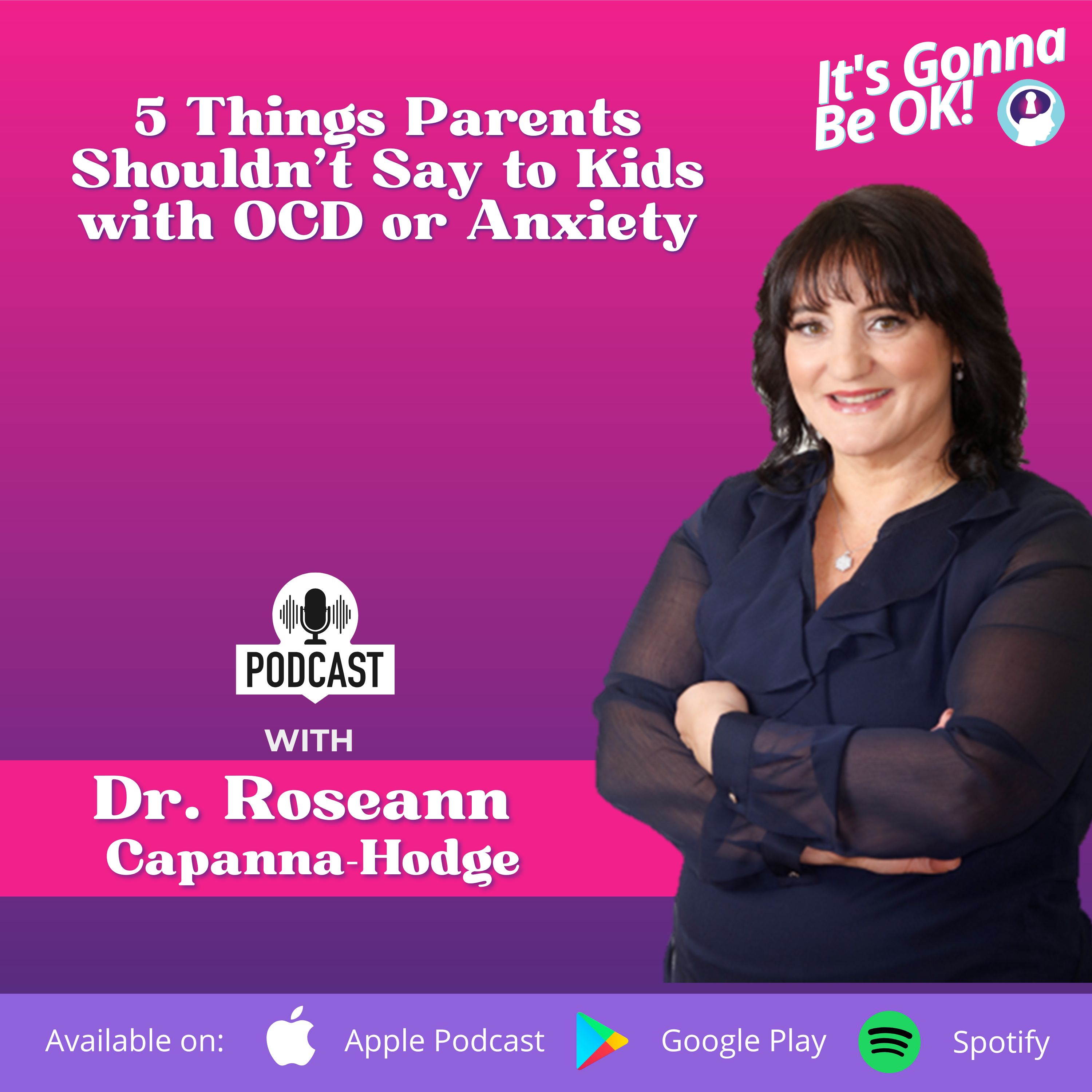
As parents, understanding what’s really going on beneath our child’s anxiety or OCD is one of the most important things we can do to support them. When they're dysregulated, the things we tell them are more than just words—they can either comfort and guide or shame and overwhelm them. In those heightened moments, anxious or intrusive thoughts can take over, and our children look to us to help them feel safe, grounded, and understood.
That’s why it's so important to be mindful of how we respond. Let me share five things parents should avoid sa...
306: The #1 Nutrient Your Child is Missing for Focus and Mood
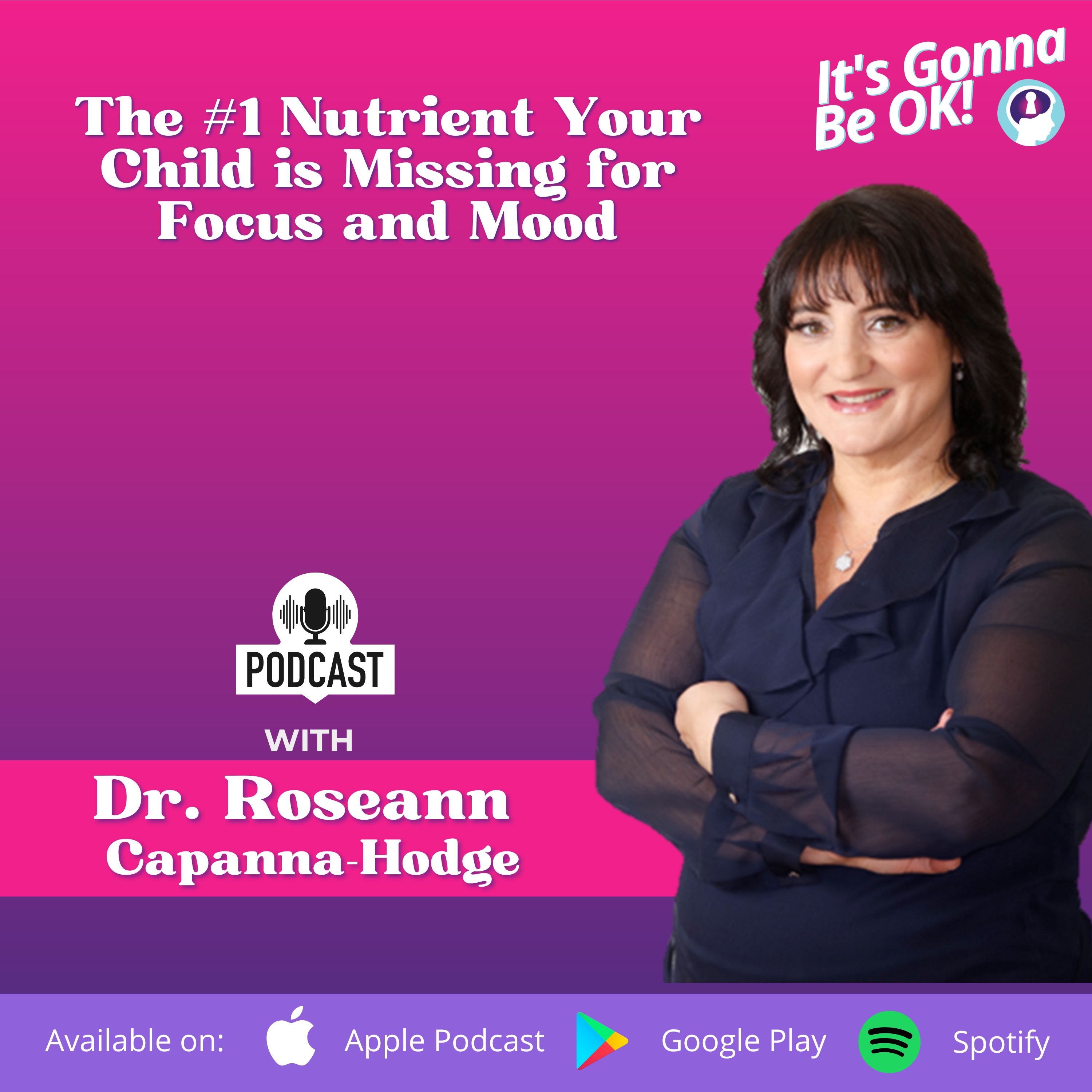
When it comes to your child’s focus, mood, and overall well-being, one nutrient that often gets overlooked is magnesium. This powerful mineral supports over 300 essential processes in the body, from muscle function to energy production. Most importantly, it helps regulate brain function, including focus, mood, and emotional stability.
If you’ve noticed your child struggling with attention, mood swings, or irritability, magnesium may be the missing piece you’ve been searching for. With proper magnesium supplementation, you’re giving them a solid foundation for thriving every day.
Not sure where to start? We'll help you find...
305: How to Stay Calm When Your Child Pushes Your Buttons (Oppositional ODD Parenting Tips)
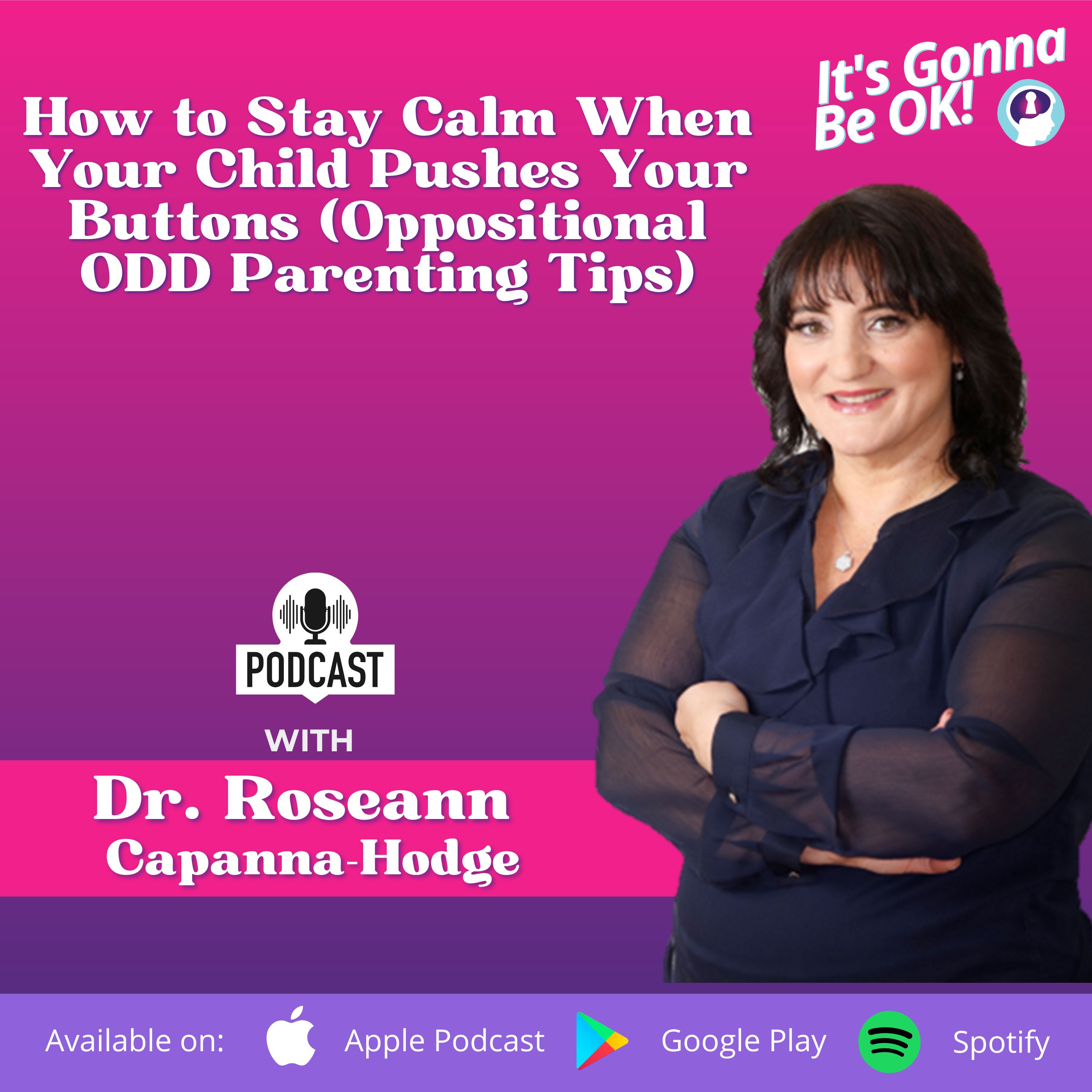
Does it ever feel like everything is just too much to handle as a parent? Between the constant demands, emotional outbursts, and the pressure to stay composed, I know that it can feel impossible to stay calm when your child is pushing your buttons.
You're not alone. Parenting can be incredibly challenging, especially when it feels like your own nervous system is just as dysregulated as your child’s. In today’s episode, we'll explore some practical strategies that will help you stay grounded and guide your child through their emotions with more ease.
Not sure...
304: ODD and ADHD: Understanding the Oppositional Defiant Disorder/ADHD Overlap and How to Help
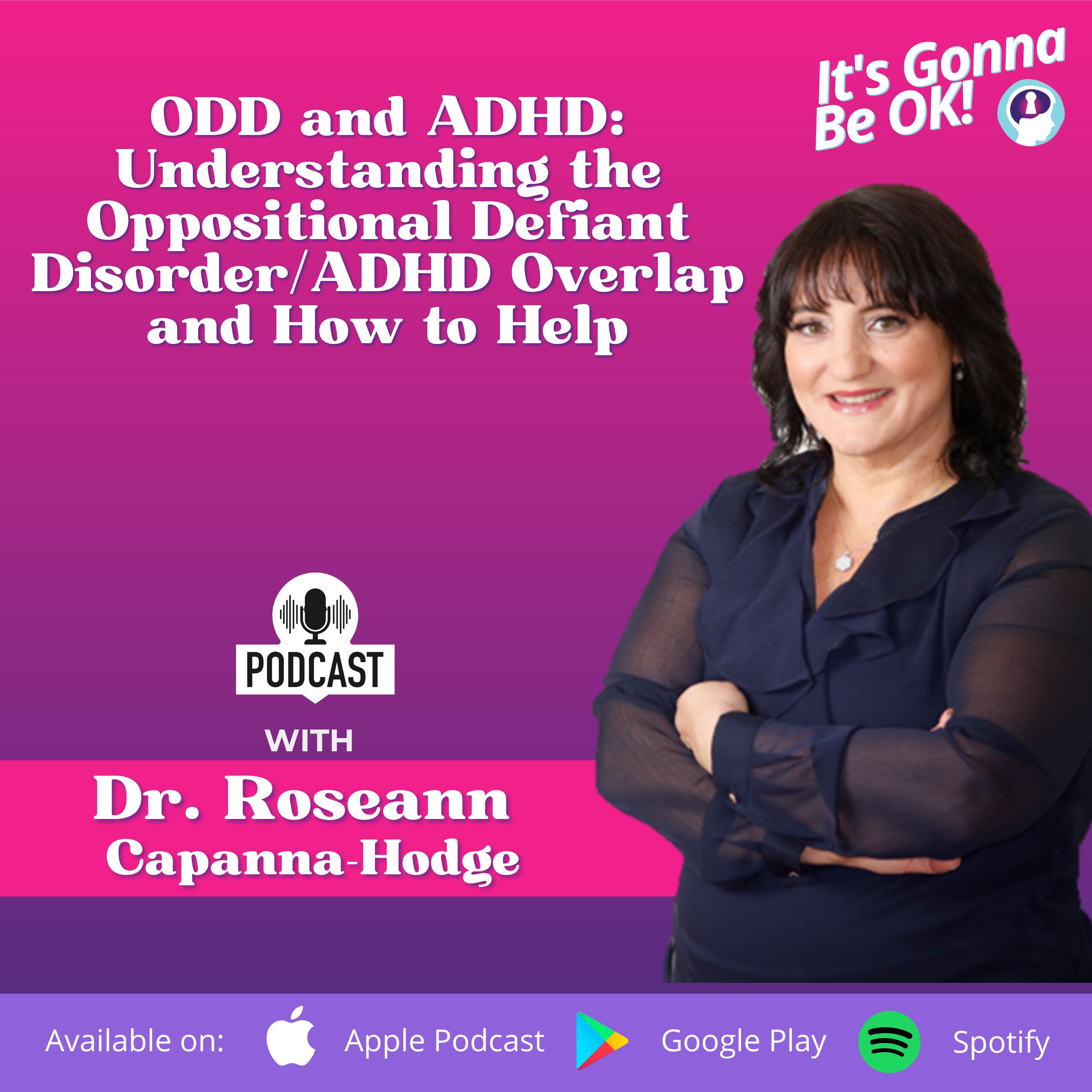
Parenting kids with ADHD or ODD can be incredibly challenging, but it’s important to remember that these behaviors aren’t a reflection of defiance or bad parenting. I understand how easy it is to feel stuck in a cycle of frustration and miscommunication, but the key lies in recognizing that these behaviors stem from neurological differences, not a lack of will or discipline.
If you’ve been feeling frustrated, unsure of how to break the cycle of defiance or emotional outbursts, especially with the overlap of ADHD and ODD, this one’s for you. Let’s get starte...
303: Why We Need to Rethink ‘Bad Behavior’ as Nervous System Dysregulation
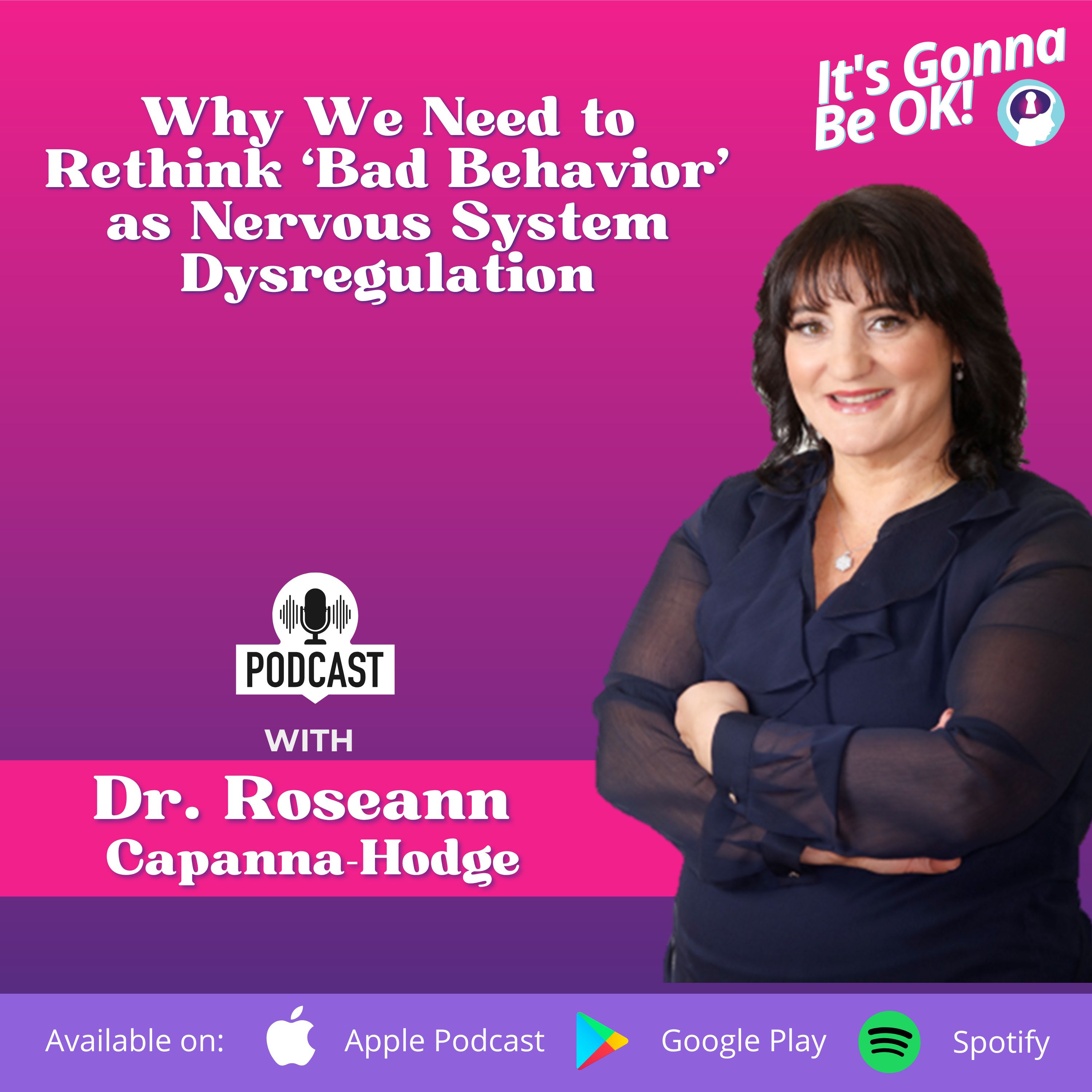
Children's behaviors are often viewed through a lens of judgment—disobedient, defiant, or disrespectful—leading to quick conclusions and punishments. However, this perspective doesn’t tell the whole story. More often than not, these behaviors are signs of deeper emotional or neurological struggles, not intentional misbehavior.
By reframing how we view behavior, we open the door to greater connection and understanding with our children. Let’s explore why we need to rethink "bad behavior" and how understanding its roots can transform how we respond, creating opportunities for healing, growth, and deeper emotional connections.
Not sure where to...
302: Executive Dysfunction Explained: Why Your Child Can’t Start (or Finish) Anything
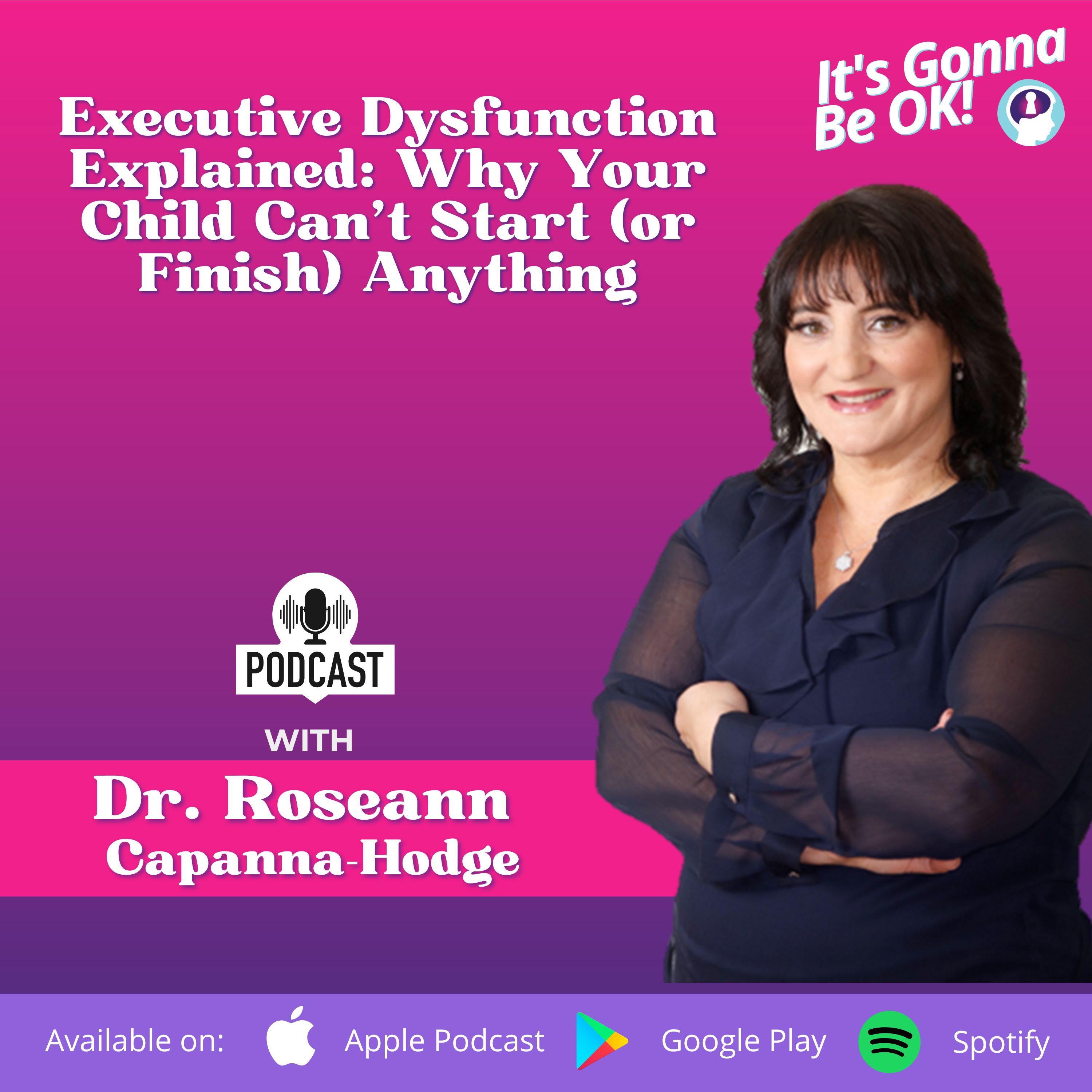
Have you ever watched your child struggle to start or finish a task, whether it’s homework, chores, or even just a simple conversation? Often, it’s easy to assume they’re being defiant or lazy, but the reality is much more complex. This may be rooted in executive dysfunction.
Understanding that this is not an act of defiance, but rather a brain-based difficulty, is key to supporting your child in overcoming these hurdles. In today’s episode, we’ll break down executive dysfunction, how it impacts your child’s ability to focus, plan, and follow through, and most impo...
301: Stop the Trial and Error: How the BrainBehaviorReset™ Program Helps Kids with ADHD, Anxiety, OCD & More
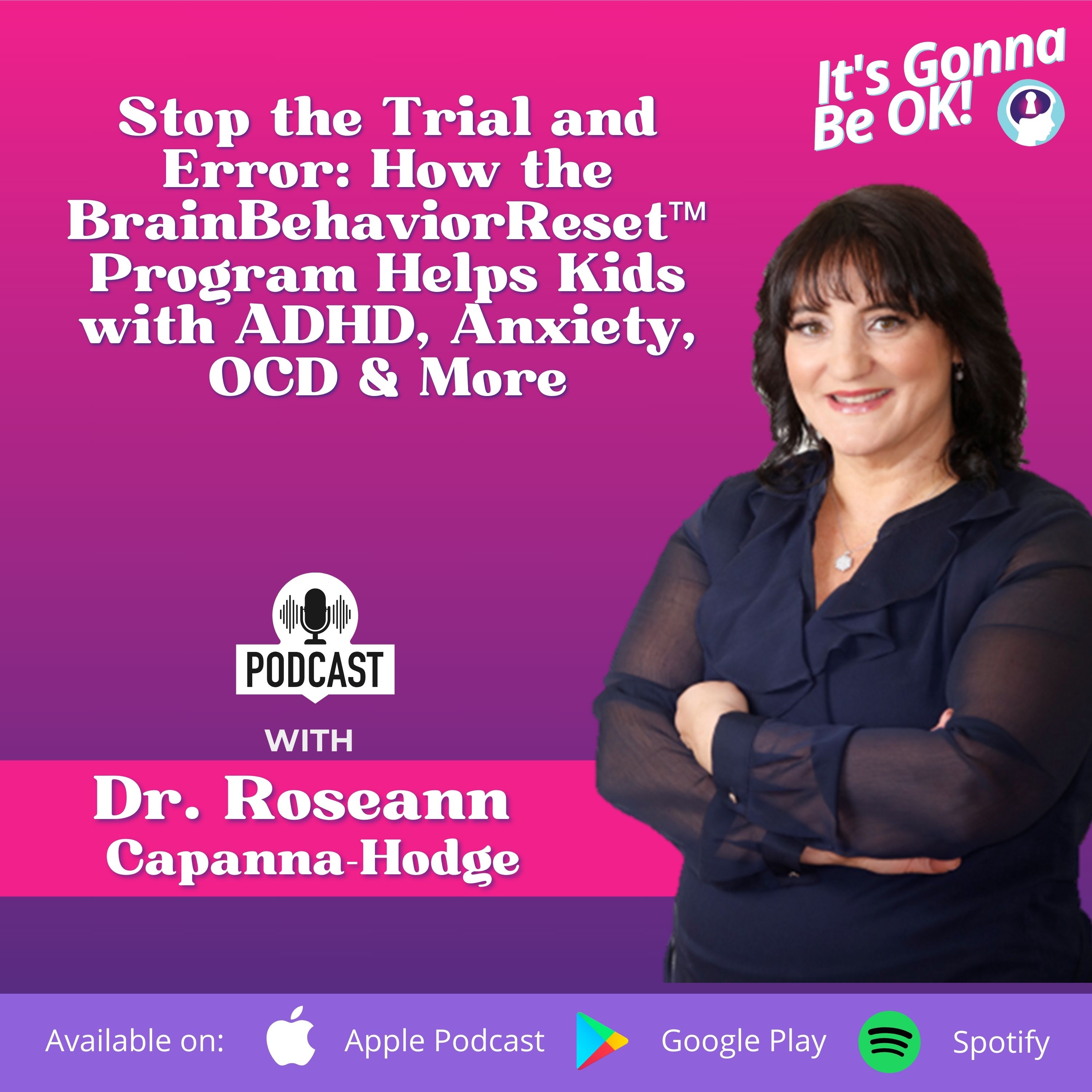
Does it seem like no matter what approach you try, nothing sticks—and your kid remains anxious, overwhelmed, or shutting down? You’re not alone, and it’s not your fault. The reason so many therapies fall flat is because they don’t address the root cause: a dysregulated nervous system.
Take this as your sign to stop the exhausting cycle of trial and error. Until you calm the brain, lasting change in your child’s behavior, attention, or emotional well-being just won’t happen. That’s exactly where the BrainBehaviorReset™ Program comes in—bringing science-backed solutions and proactive guid...
300: The Gut-Brain Connection: How Microbiome Health Affects ADHD, Autism, and Anxiety in Kids with Dr. Aaron Hartman
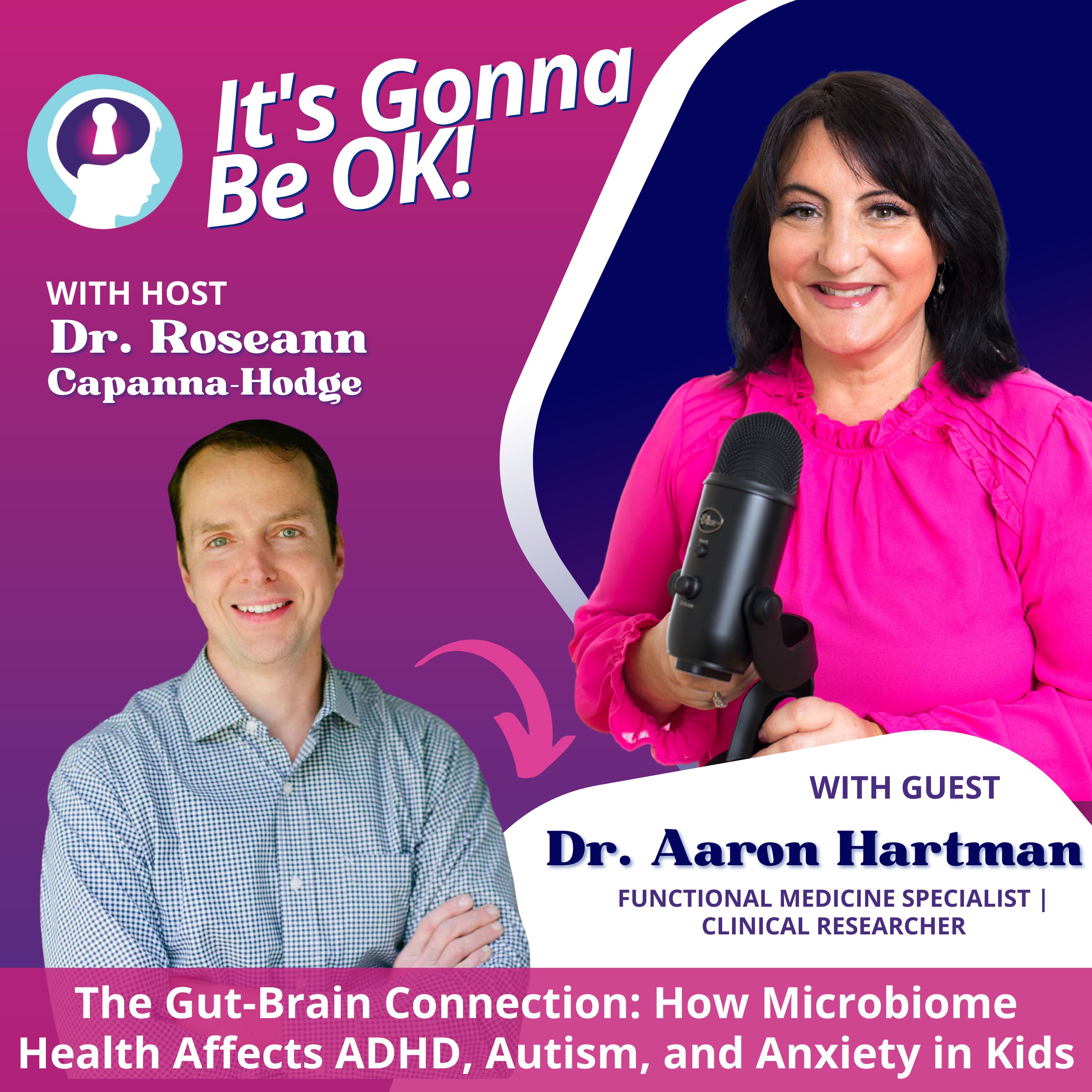
The microbiome isn’t just about digestion — it’s a cornerstone of nervous system regulation and mental health. And yet, it's often overlooked. Healing the gut can be a catalyst for emotional balance, focus, and behavioral improvements.
This episode is filled with powerful insights as I am joined by Dr. Aaron Hartman, a trusted expert and triple board-certified physician, to explore how gut health is deeply connected to children's emotional and behavioral well-being. Together, we dive into why microbiome imbalances can be a hidden root cause of issues like ADHD, autism, anxiety, and more — and how calming the brai...
299: How to Help Kids Develop Emotional Regulation and Express Their Feelings
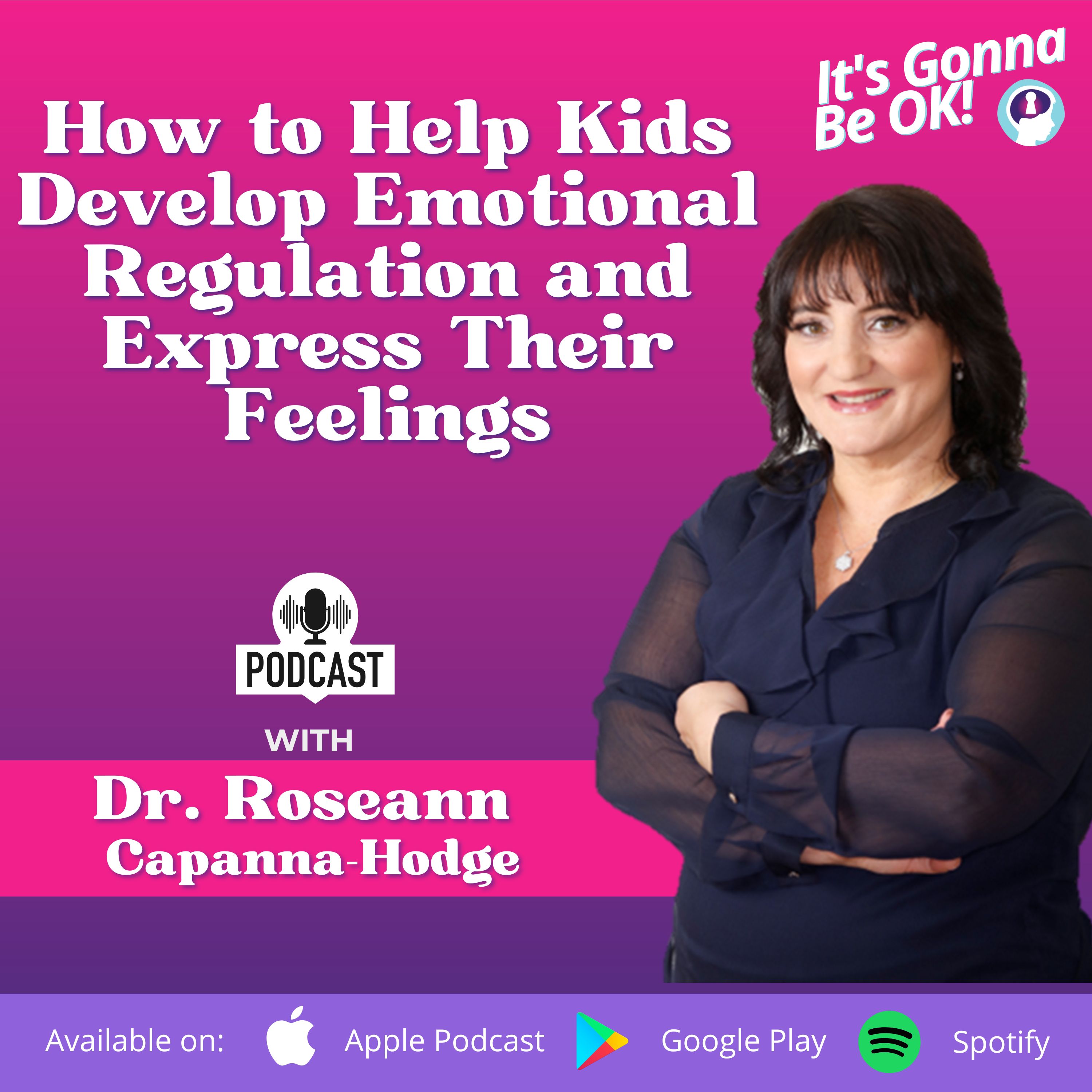
While emotional regulation is one of the most essential skills your child can have and develop, it is often one of the struggles that many children face. In today’s fast-paced and often overwhelming world, there are so many triggers that can lead to strong emotional reactions. These struggles can manifest in behaviors like your child having meltdowns, experiencing difficulty focusing, or even withdrawing from others.
However, with guidance and the right strategies, emotional regulation can be taught, helping children better understand their feelings, express themselves in healthy ways, and build resilience for the future. In this ep...
298: How to Increase Self-Control in Children – Simple Strategies That Work
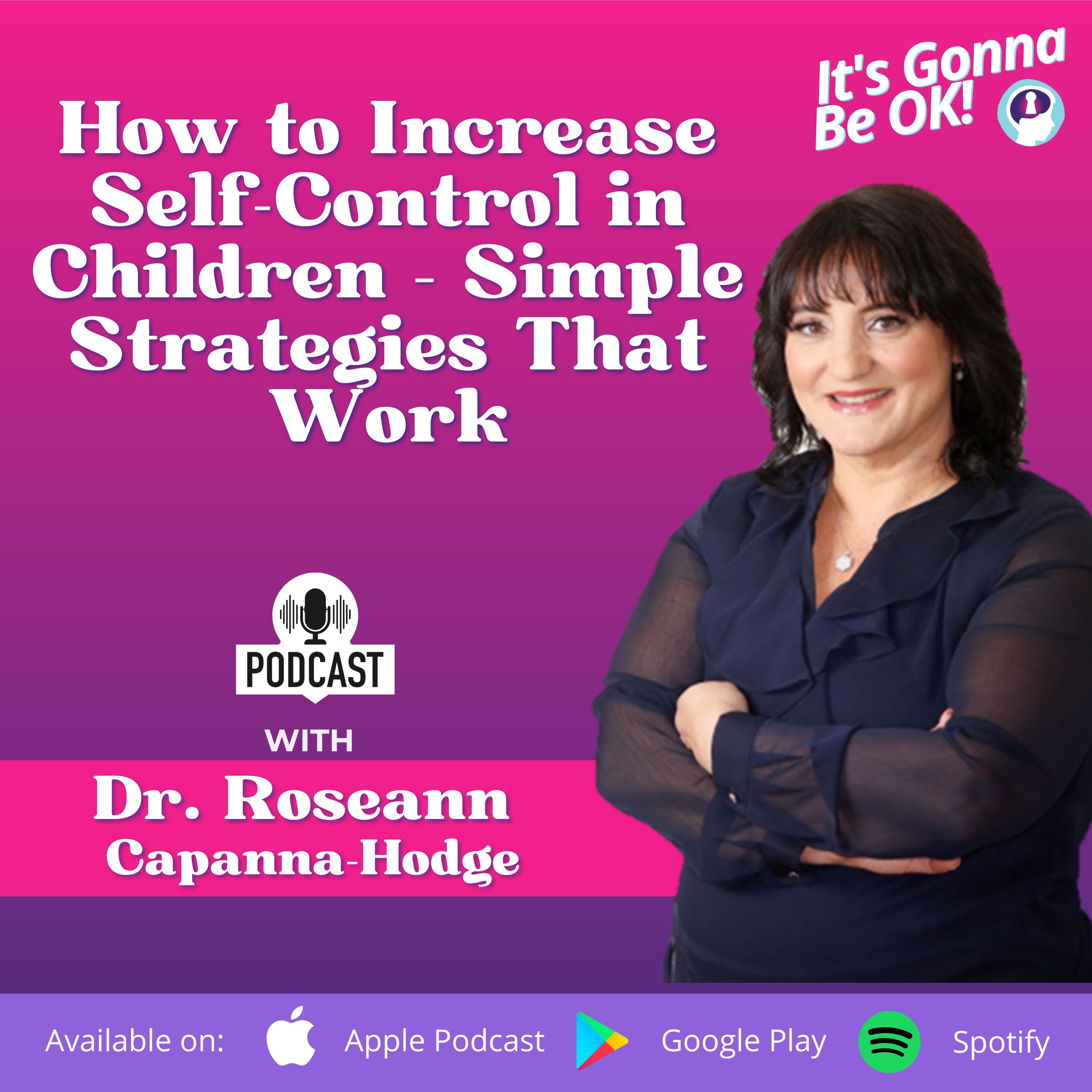
Children often struggle with self-control not because they lack discipline, but because their developing brains and nervous systems are still learning how to manage impulses, emotions, and frustration. That's why it's tough for them to pause and make thoughtful decisions. It thus becomes a mission for us parents to help them increase self-control by providing the right tools, structure, and support.
I'm excited to equip you with solutions that will help you empower your children to develop their self-control in a way that feels natural and achievable. By incorporating simple yet powerful approaches into daily life, you c...
297: Why Your Child Struggles with Self-Control – The Hidden Causes
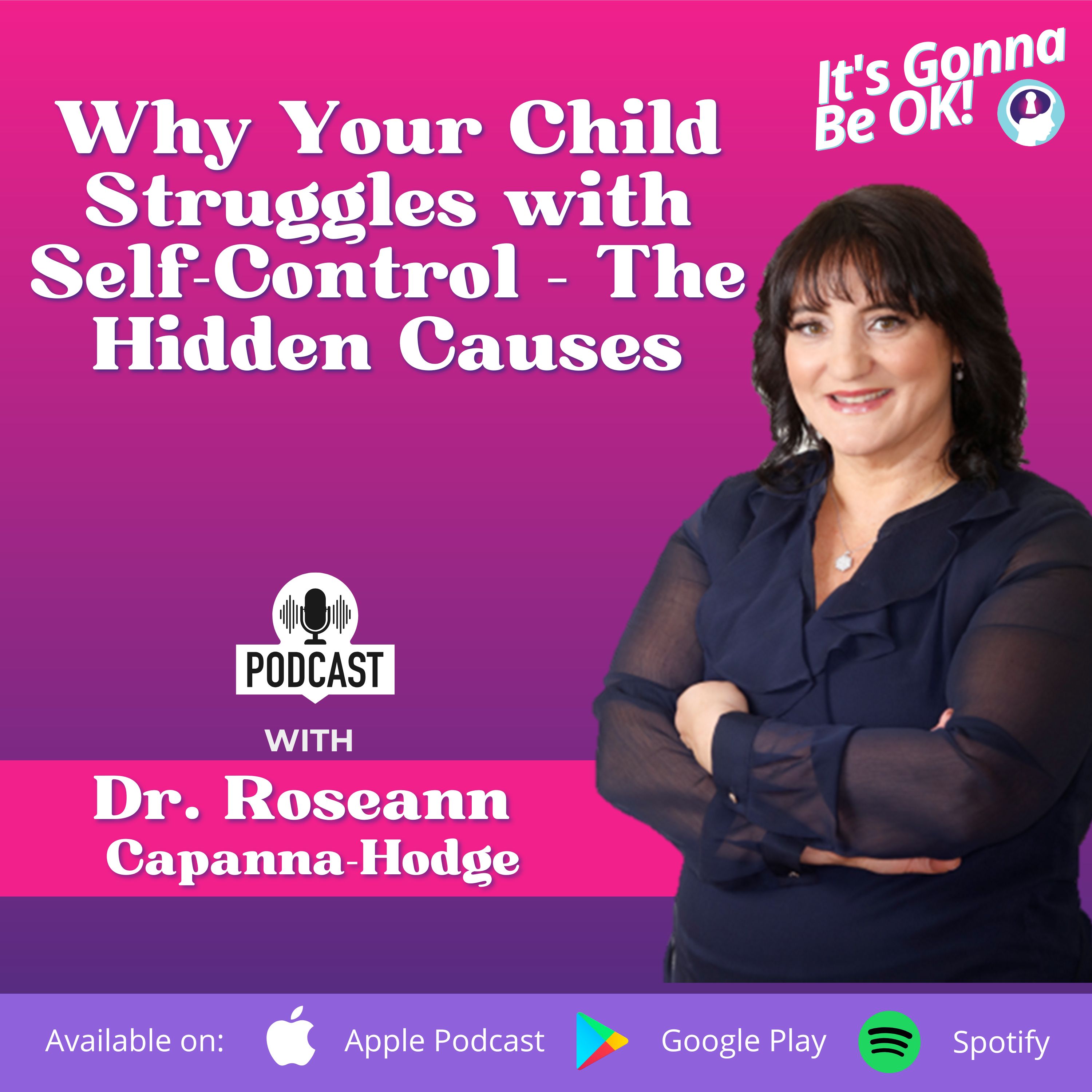
I know how frustrating it can be for parents to watch their child struggle with self-control—grabbing things without asking, interrupting conversations, or having big emotional reactions over small issues. It can be challenging, leaving you feeling like you are always walking on eggshells or bracing for the next meltdown. As parents, we remind them to slow down and think before they act, but sometimes, it just feels like nothing is working no matter what we do.
Self-control is essential for so many aspects of life that's why it's important to understand what is really going on ben...
296: Best Time to Take Magnesium Supplement

Magnesium is one of the most essential minerals that help keep the body functioning at its best. It is involved in 300 to 600 chemical processes every single day, supporting everything from energy production and muscle function to brain health and stress regulation. Because of the many benefits of magnesium supplementation, it is important to choose the right type and take it at the right time to maximize its effects.
Whatever your goal may be when it comes to improving your overall health and well-being, understanding how and when to take magnesium can make all the difference in how...
295: The Connection Between Gut Health, Behavior, and Picky Eating
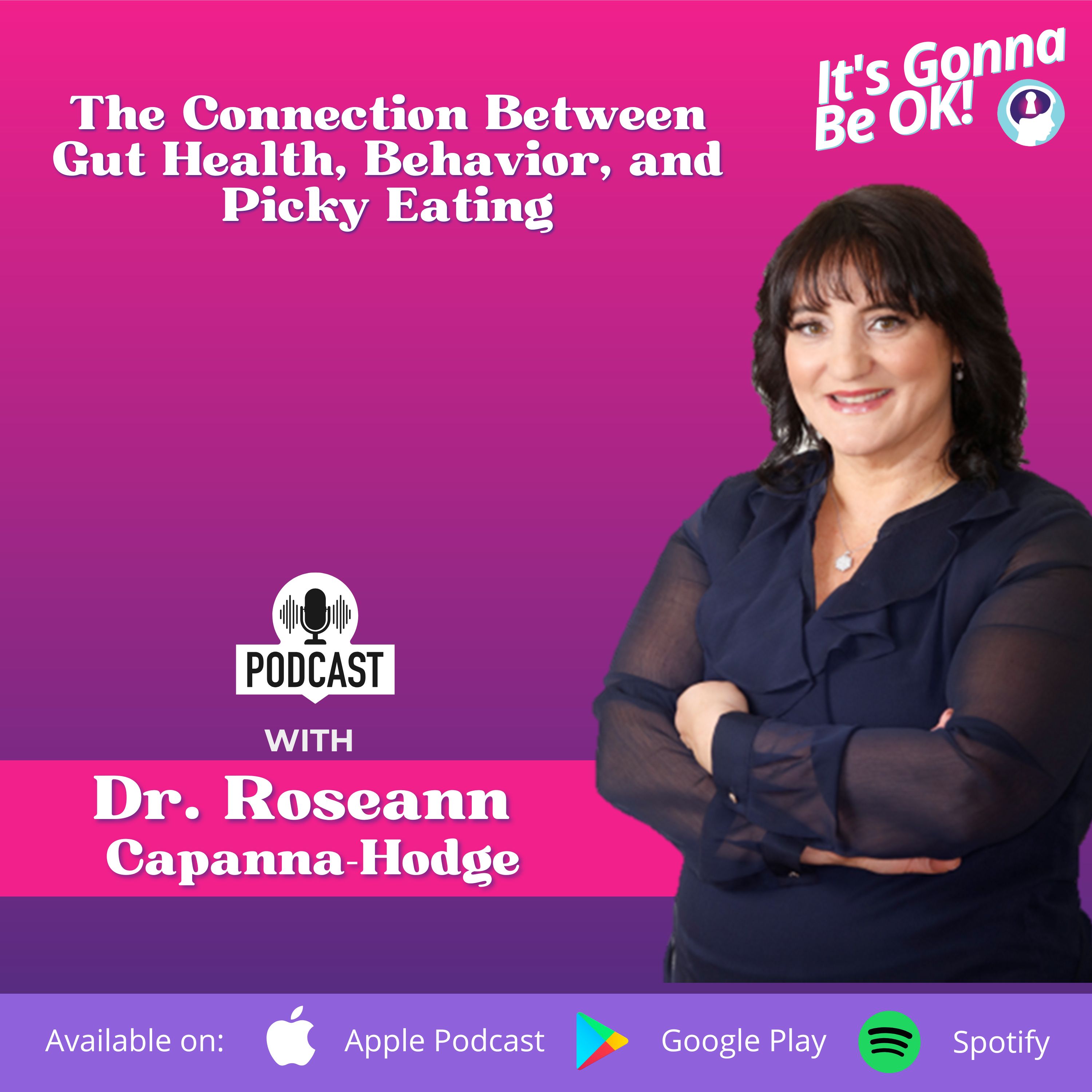
Did you know that 90% of serotonin, an essential neurotransmitter for mood and attention, is made in the gut? This connection between the gut and brain explains why digestive health plays a crucial role in a child’s emotions, behavior, and even their ability to focus. That’s why it’s important that we eat foods that support gut health and enhance gut-brain communication while also reducing triggers that impact digestion and overall well-being.
The good news is that small changes can make a big difference. Even the pickiest eaters can make progress when their nervous system is suppor...
294: 3 Surprising Causes of ADHD Symptoms Most Parents Miss
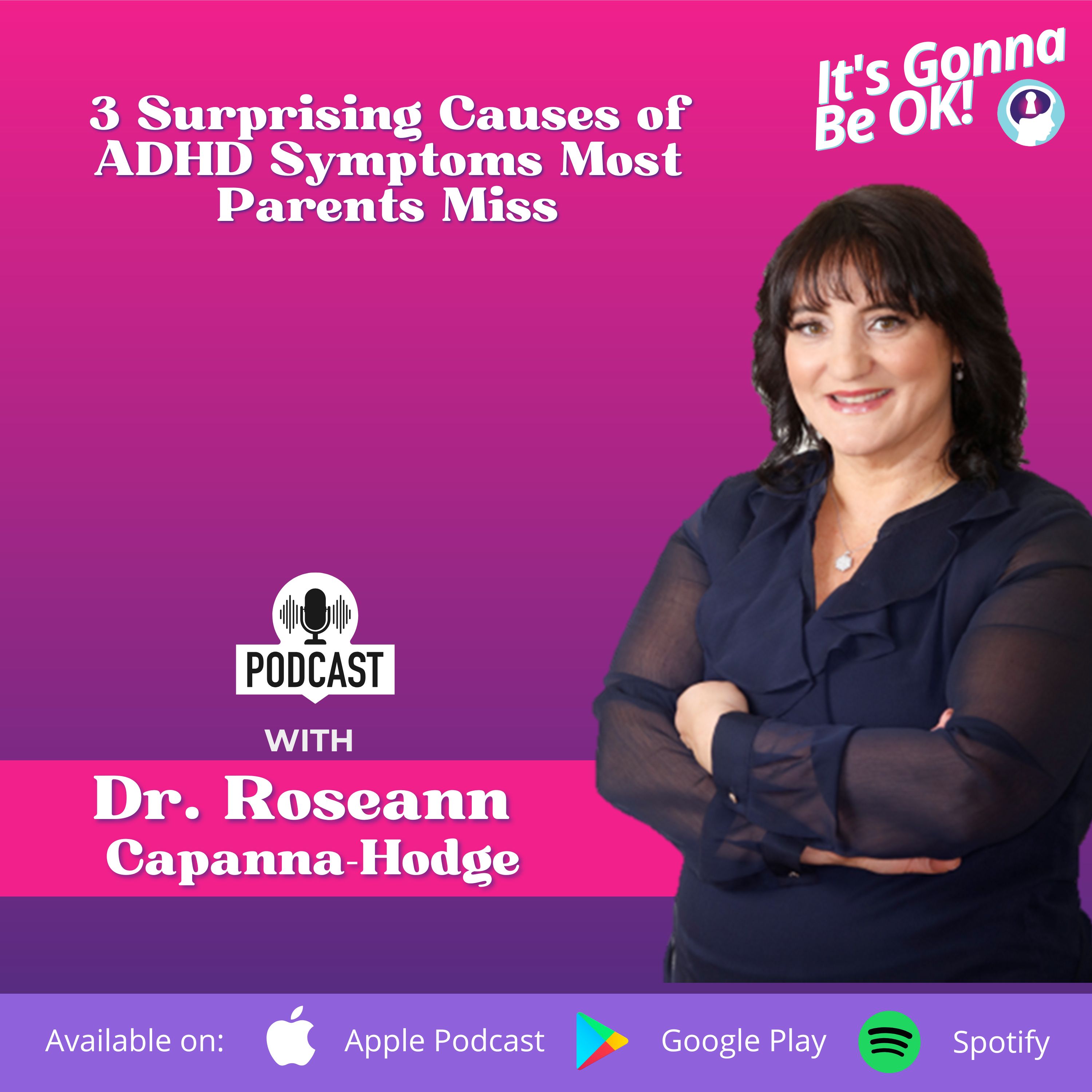
What parents don’t realize is that there are hidden factors that can make ADHD symptoms worse or even create symptoms that look just like ADHD. When a child struggles with focus, impulsivity, or emotional regulation, it is easy to assume ADHD is the only explanation. But many underlying issues can contribute to these challenges. The problem, however, is that most doctors and educators do not talk about these factors, leaving parents unaware of the real reasons behind their child’s struggles.
By understanding these hidden factors, parents can take the right steps to support their child’s nerv...
